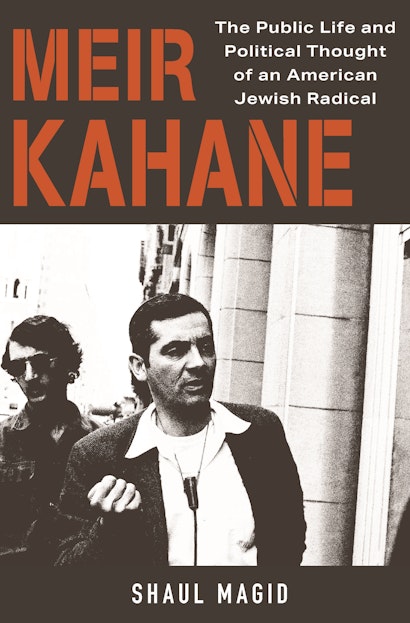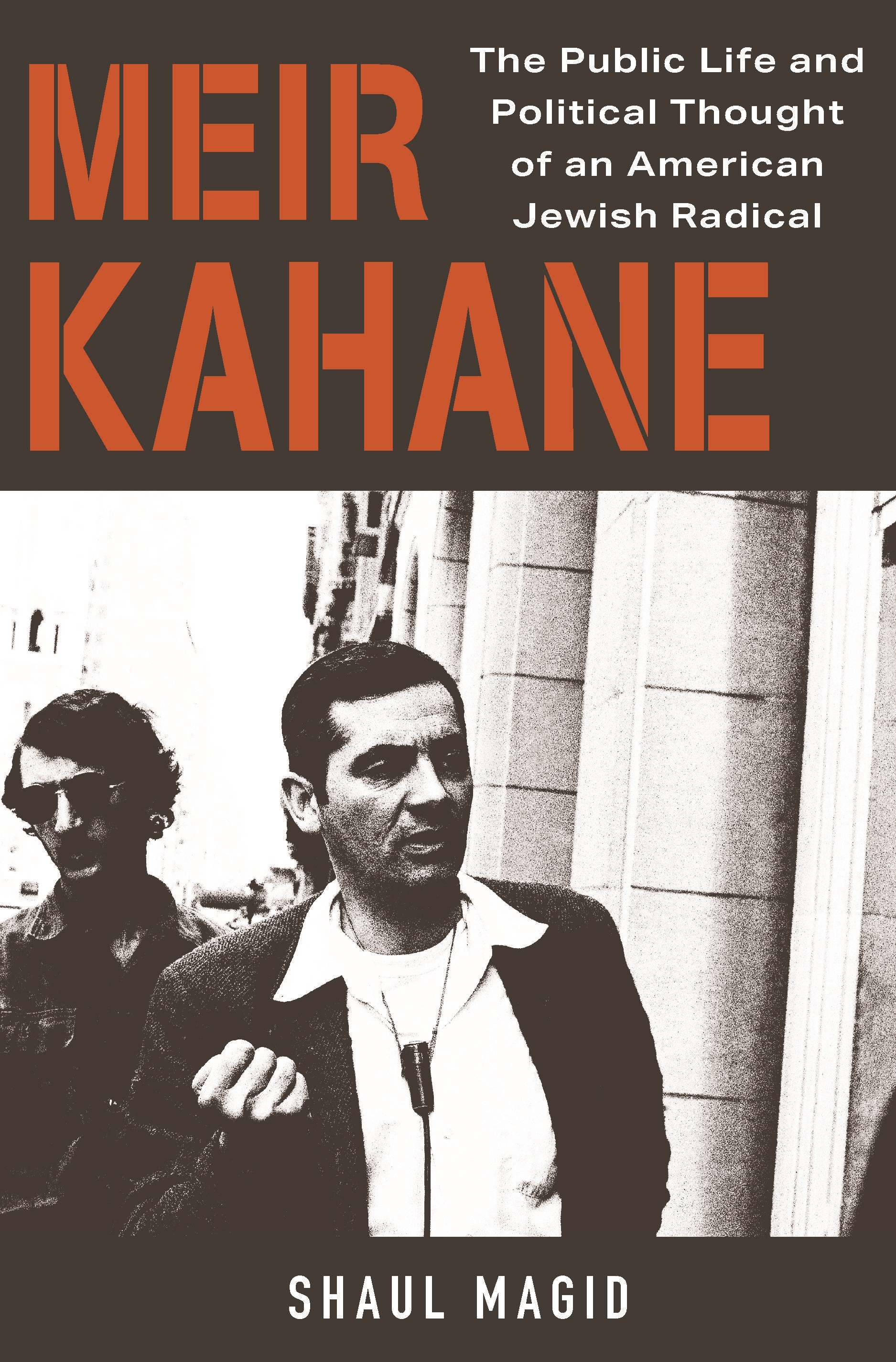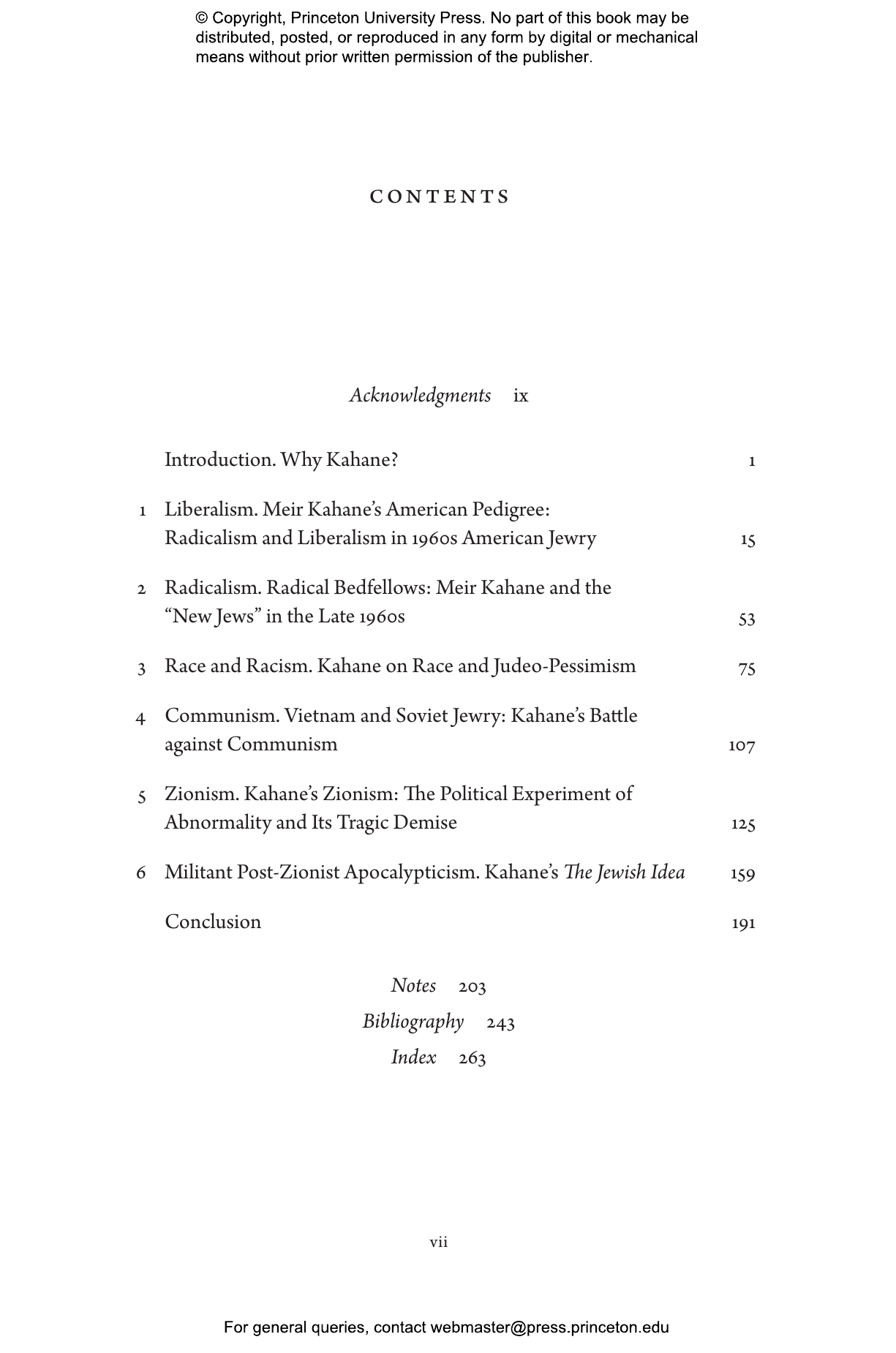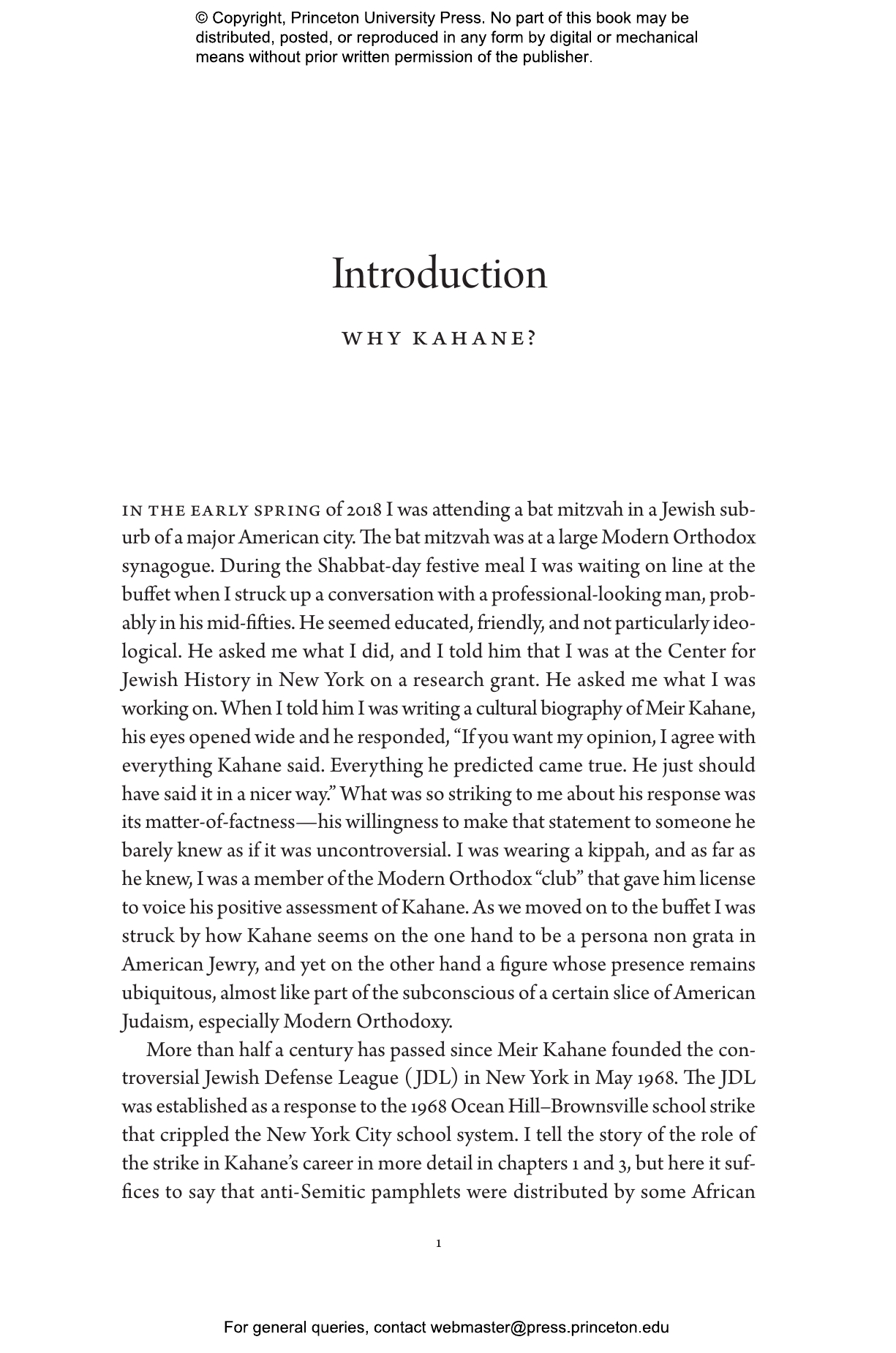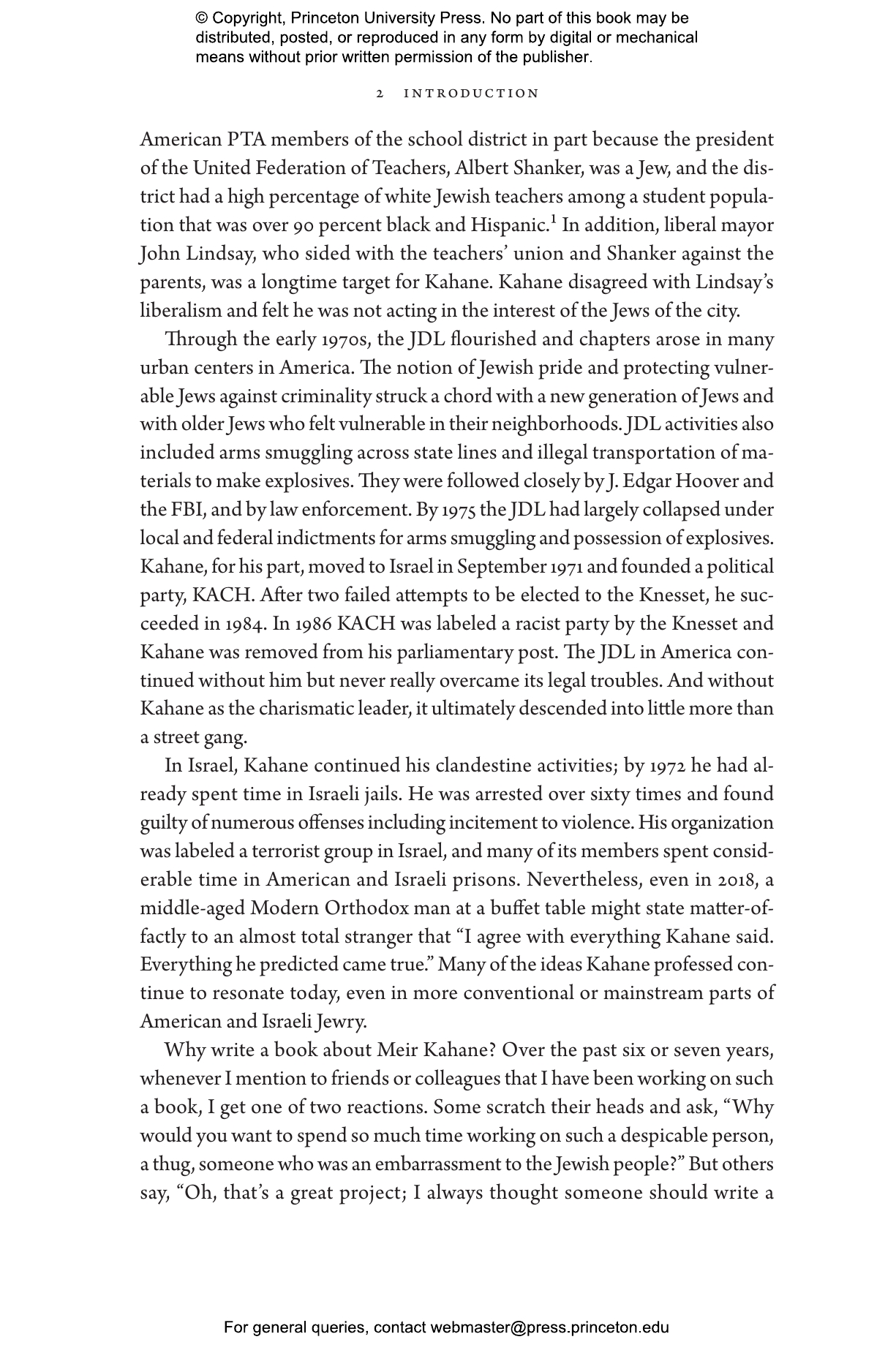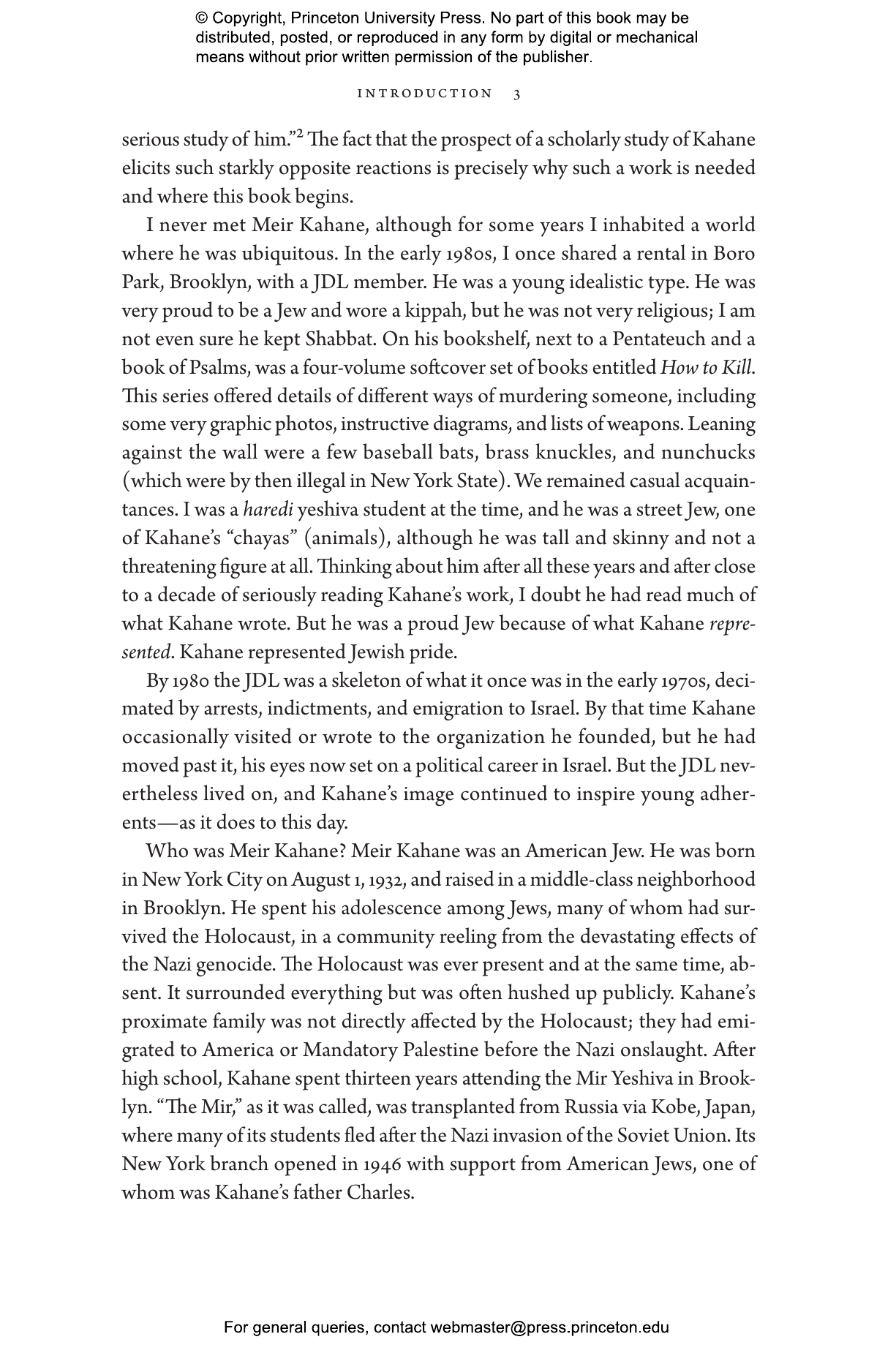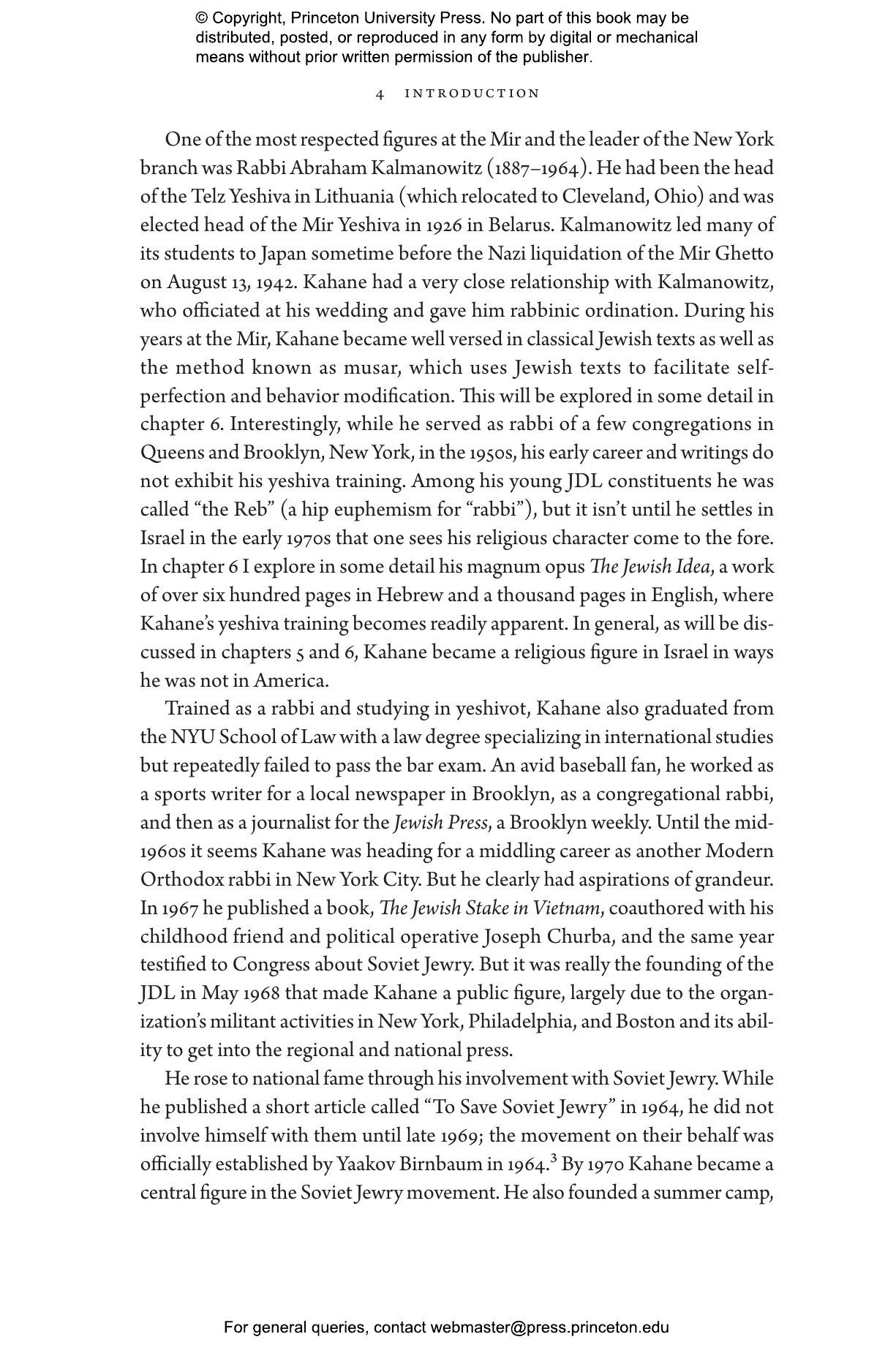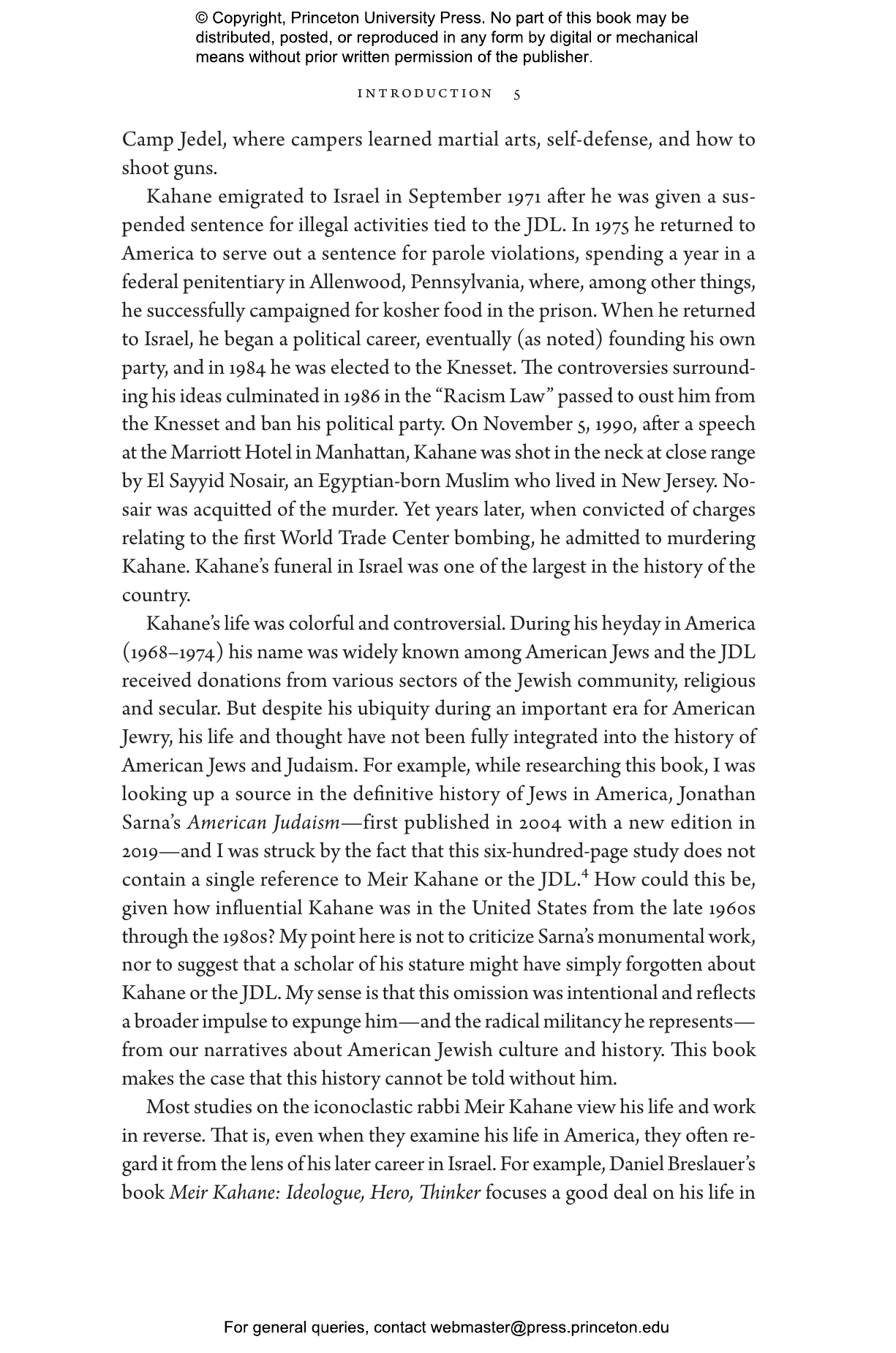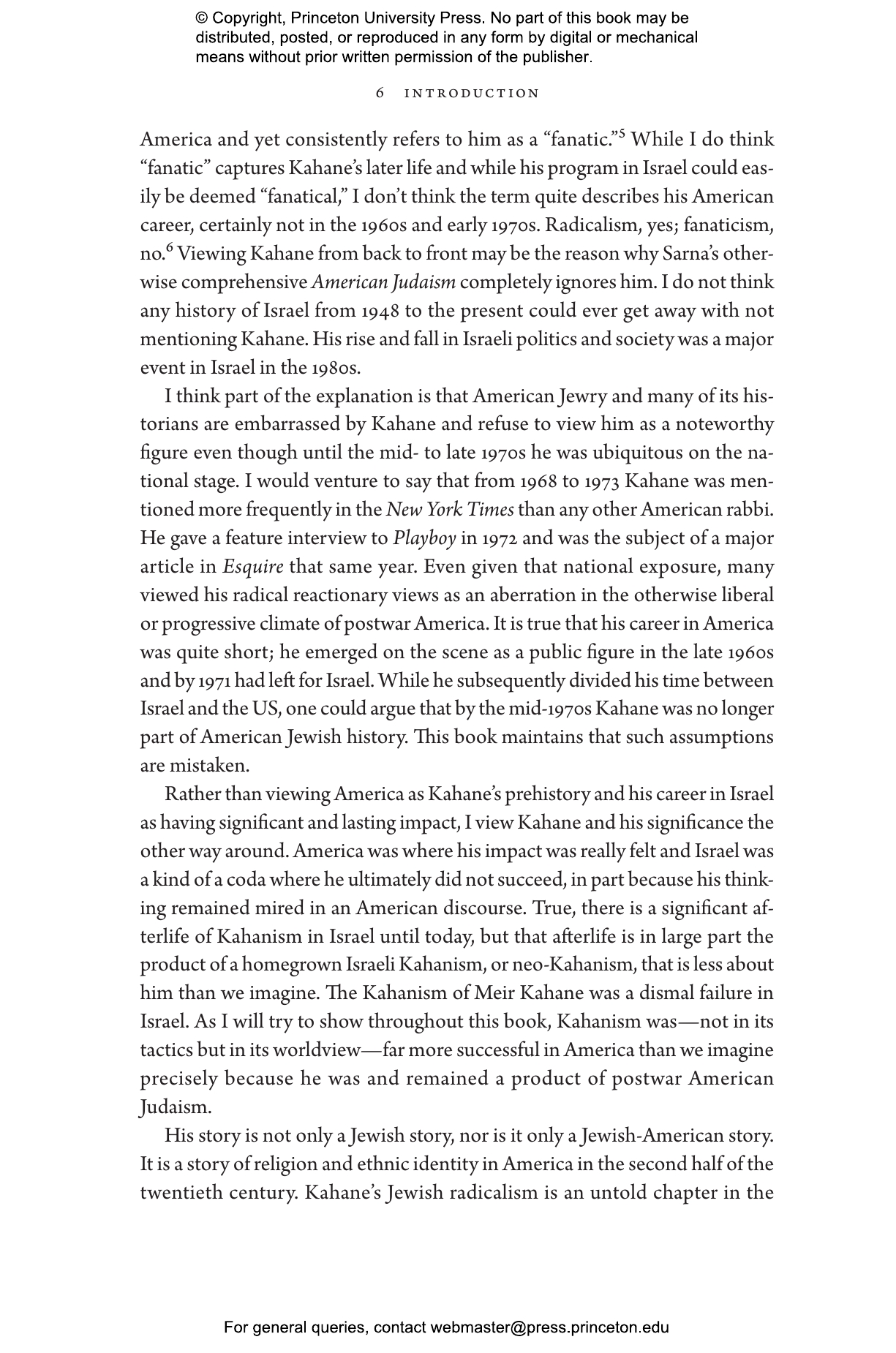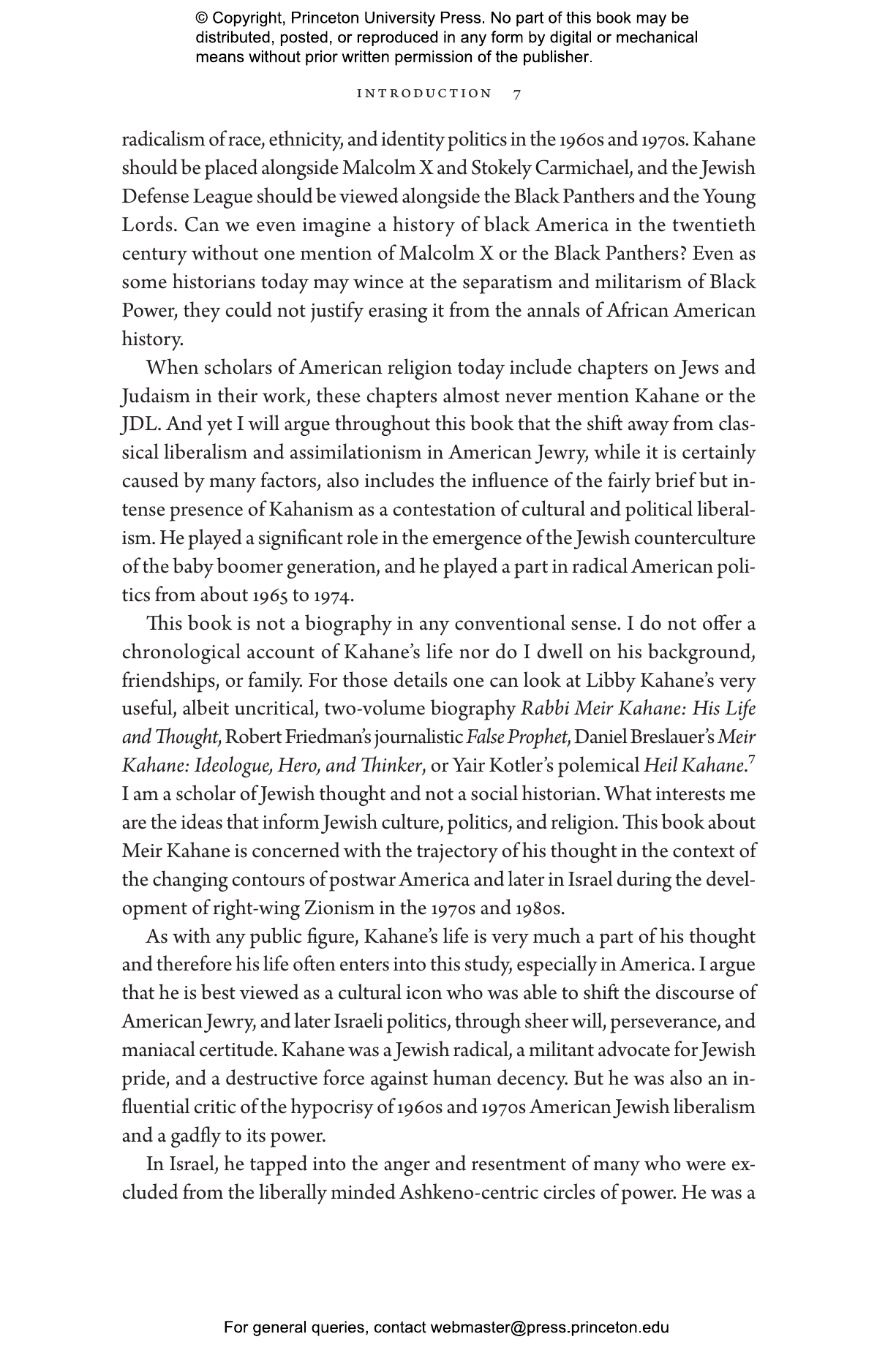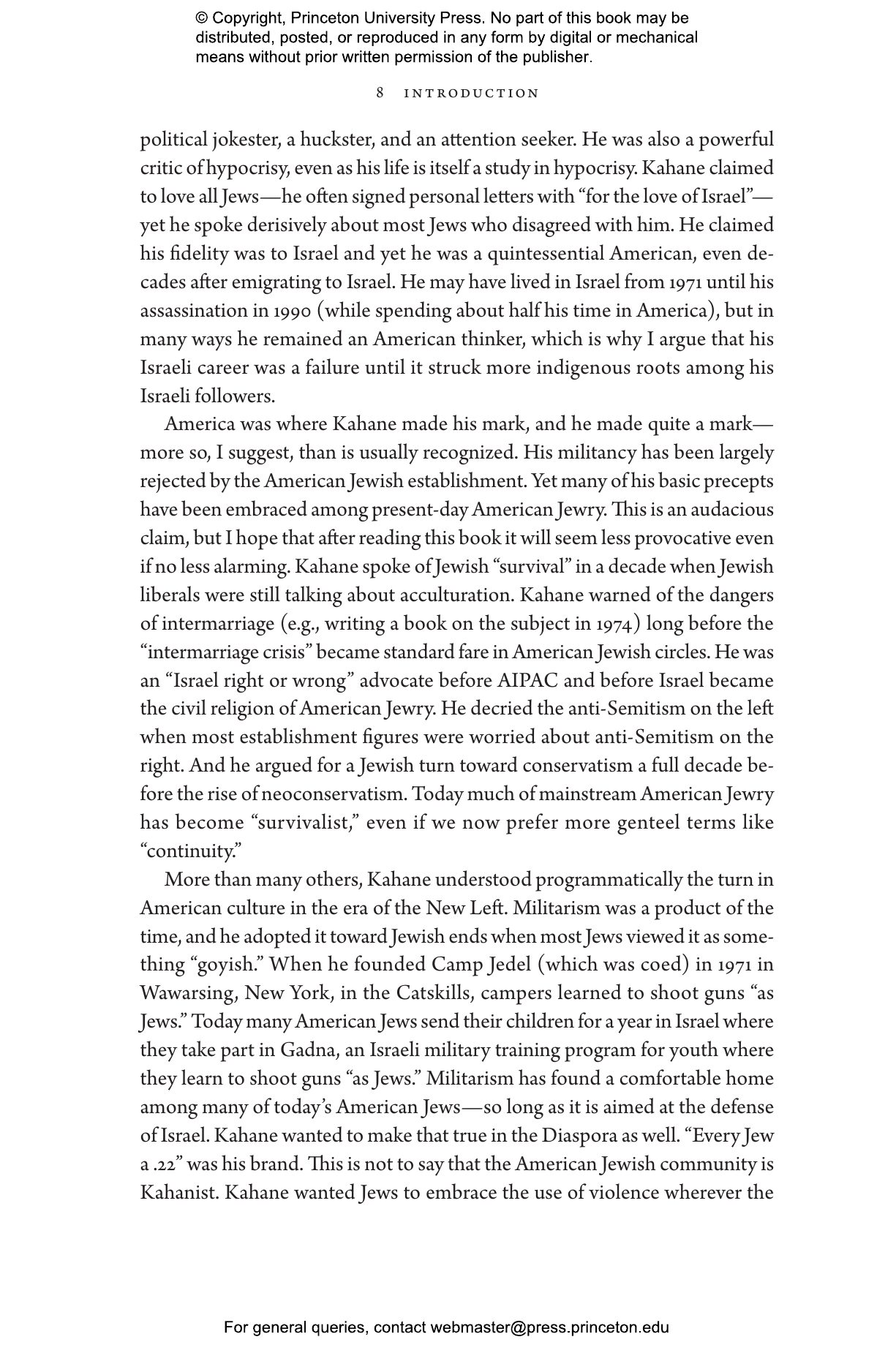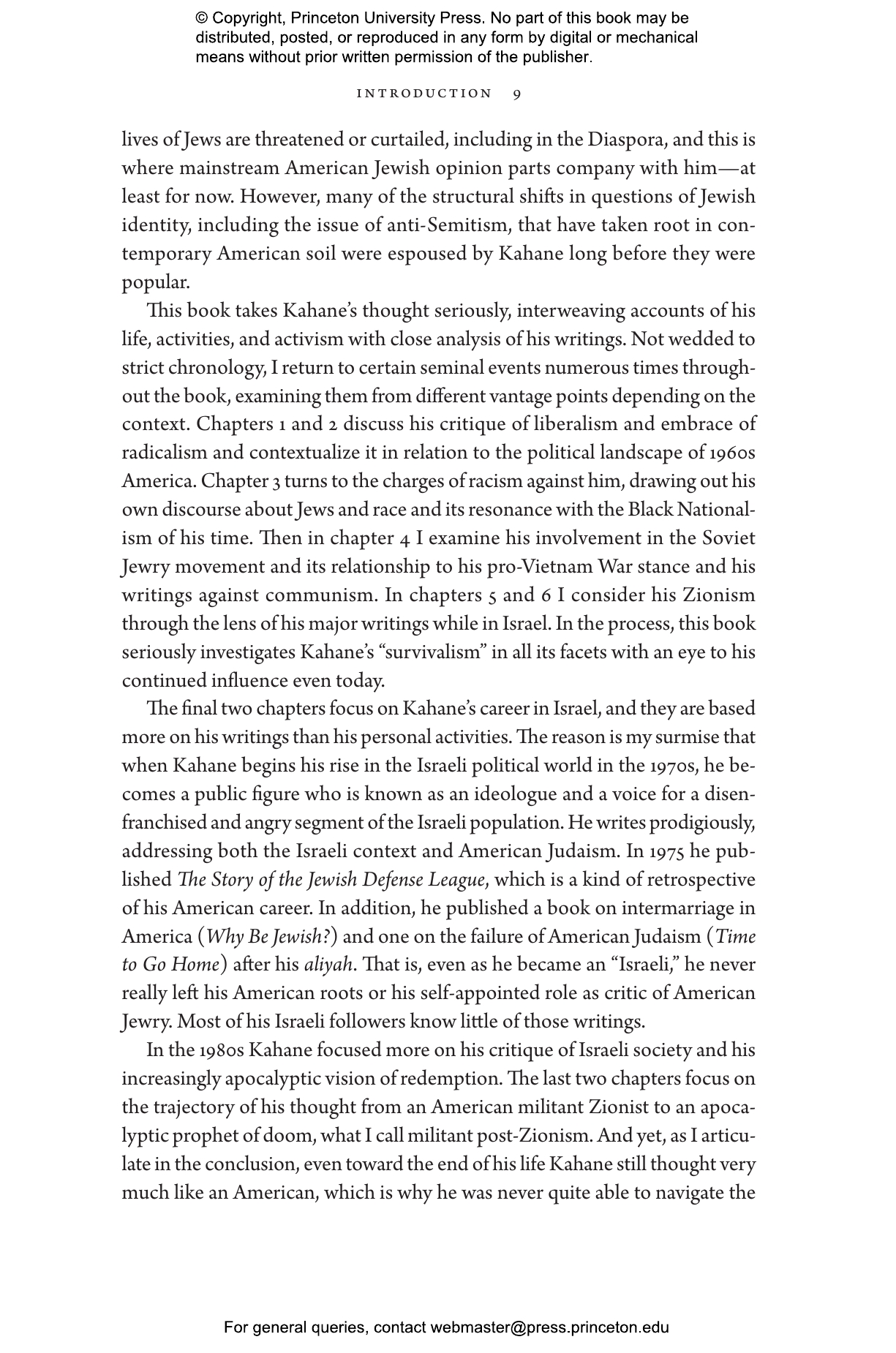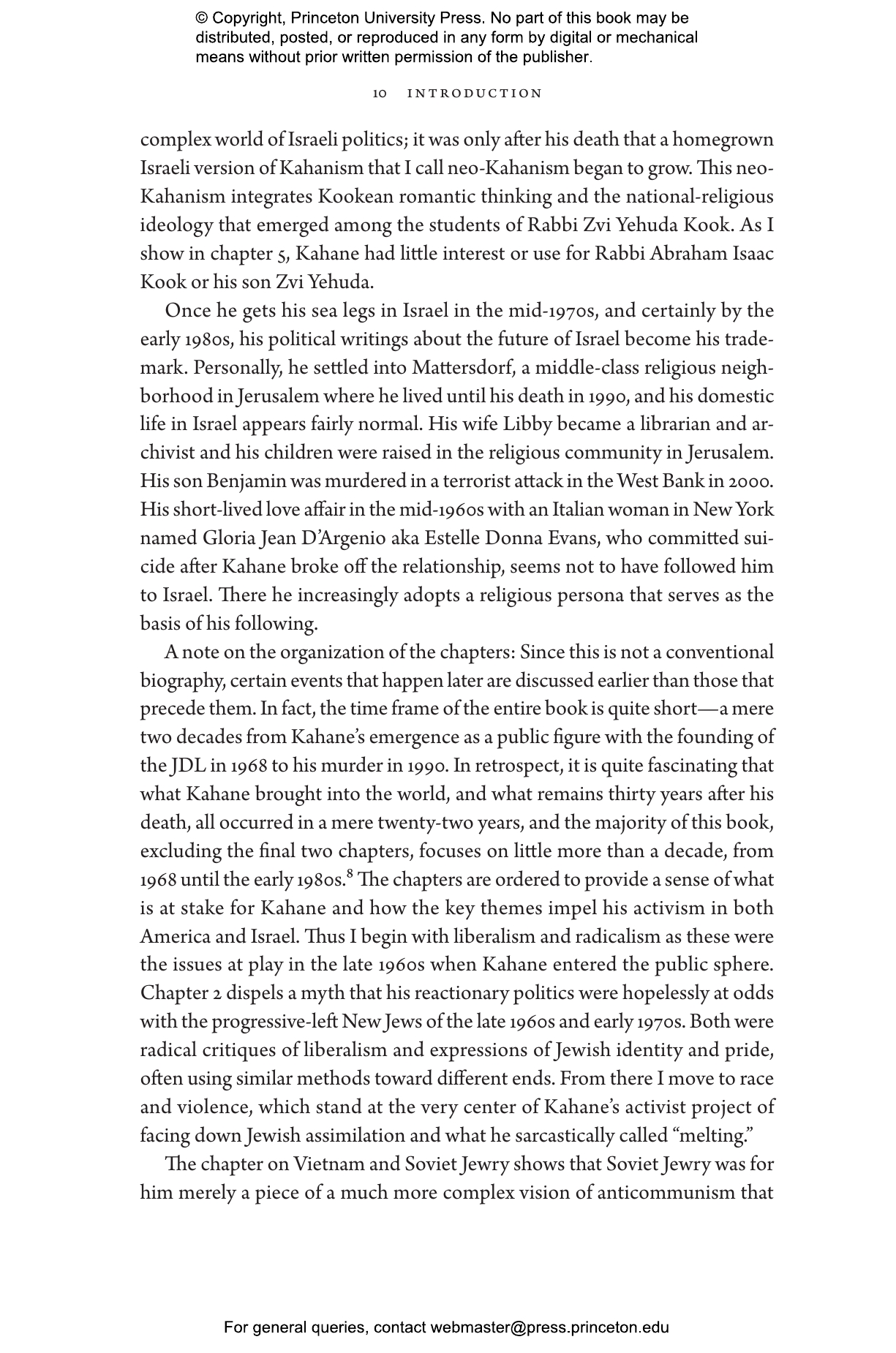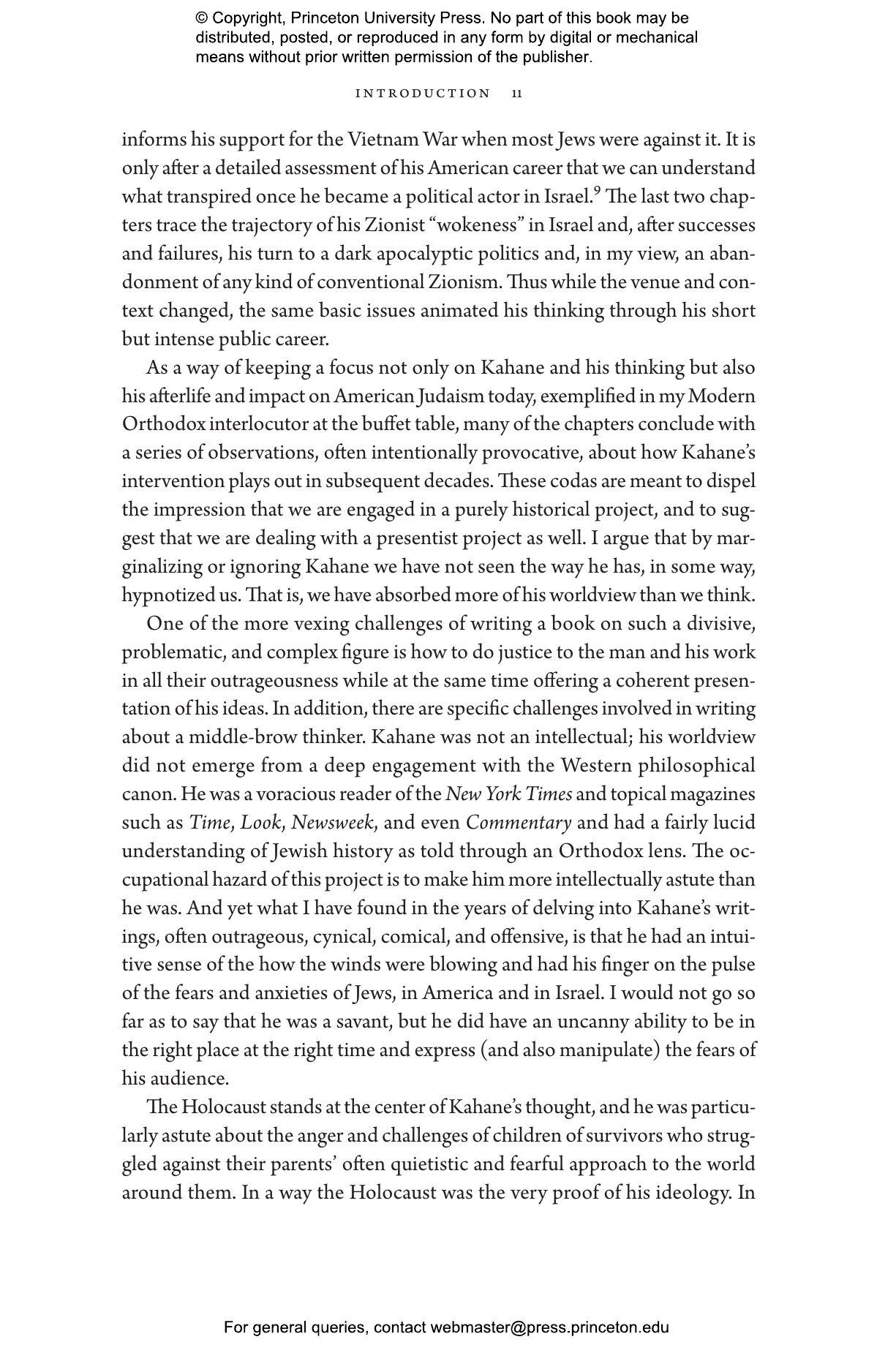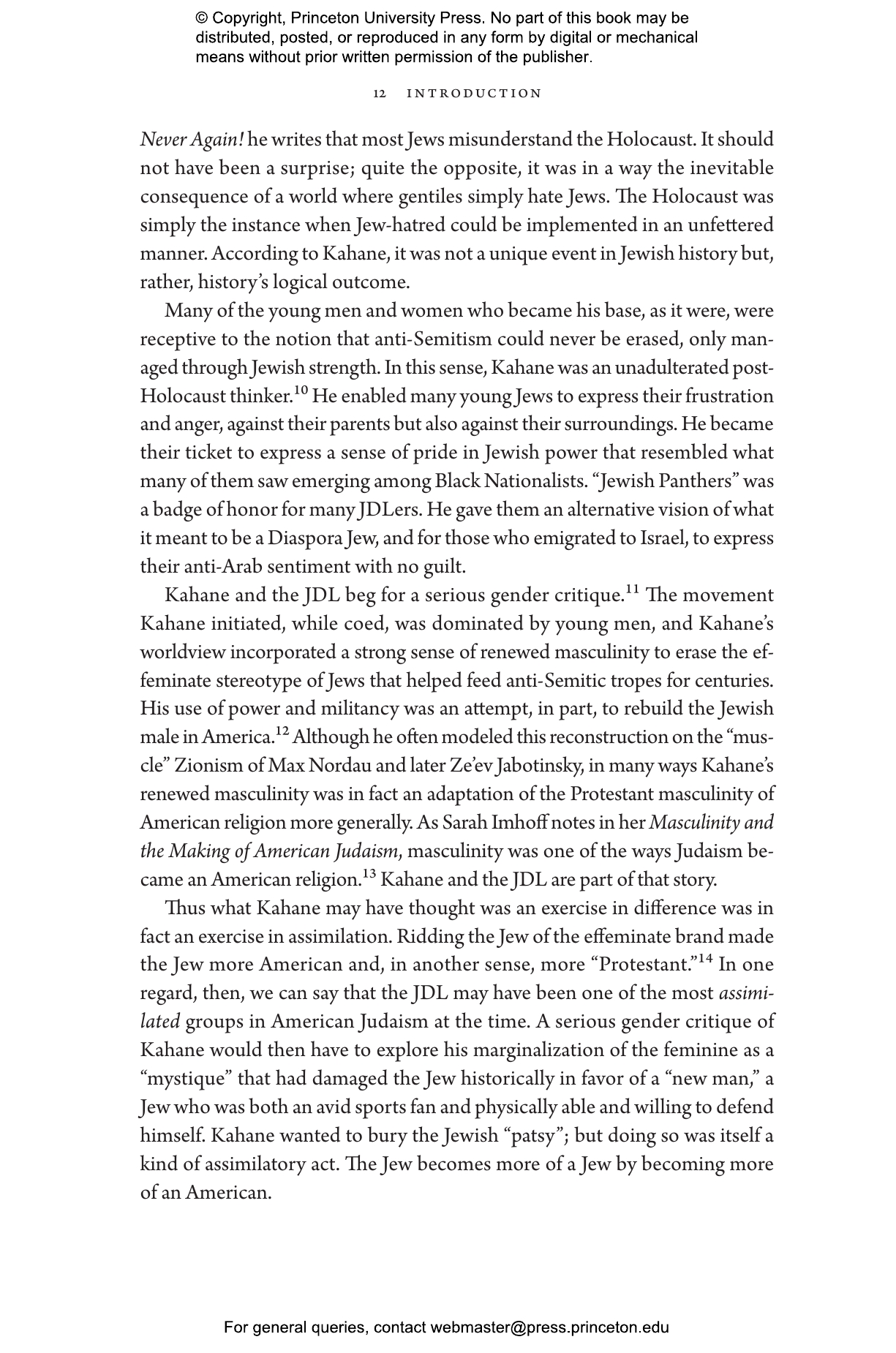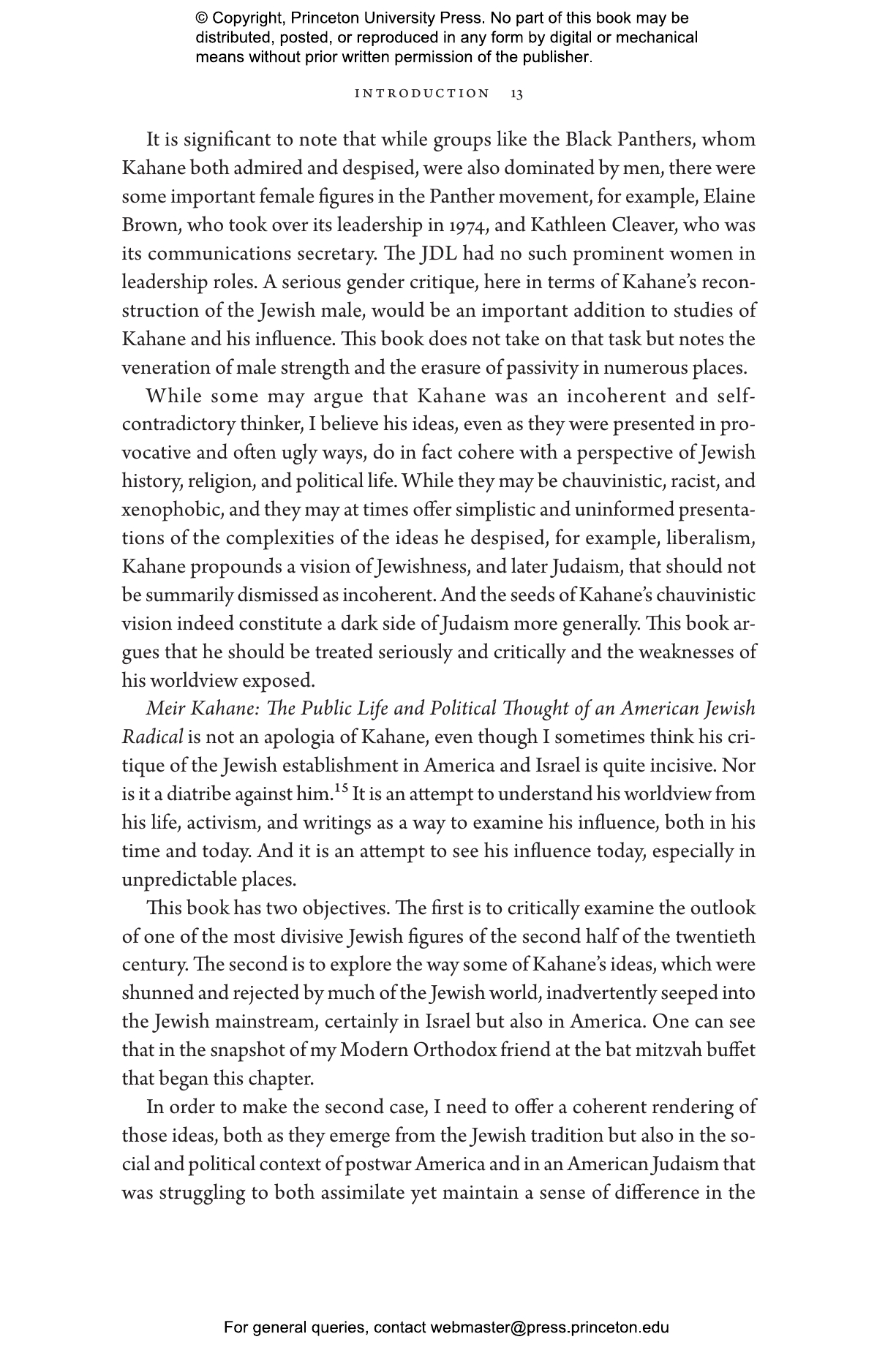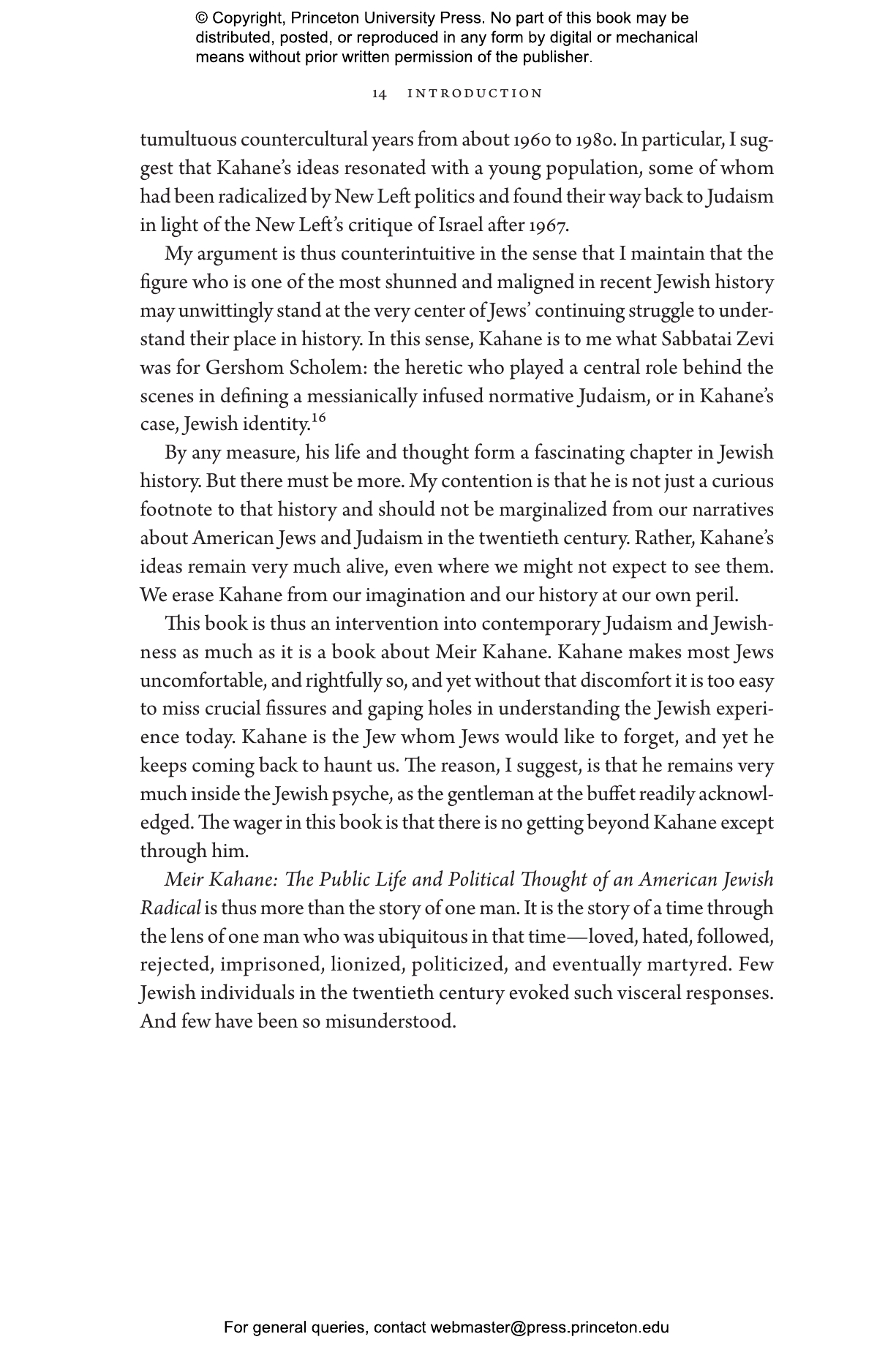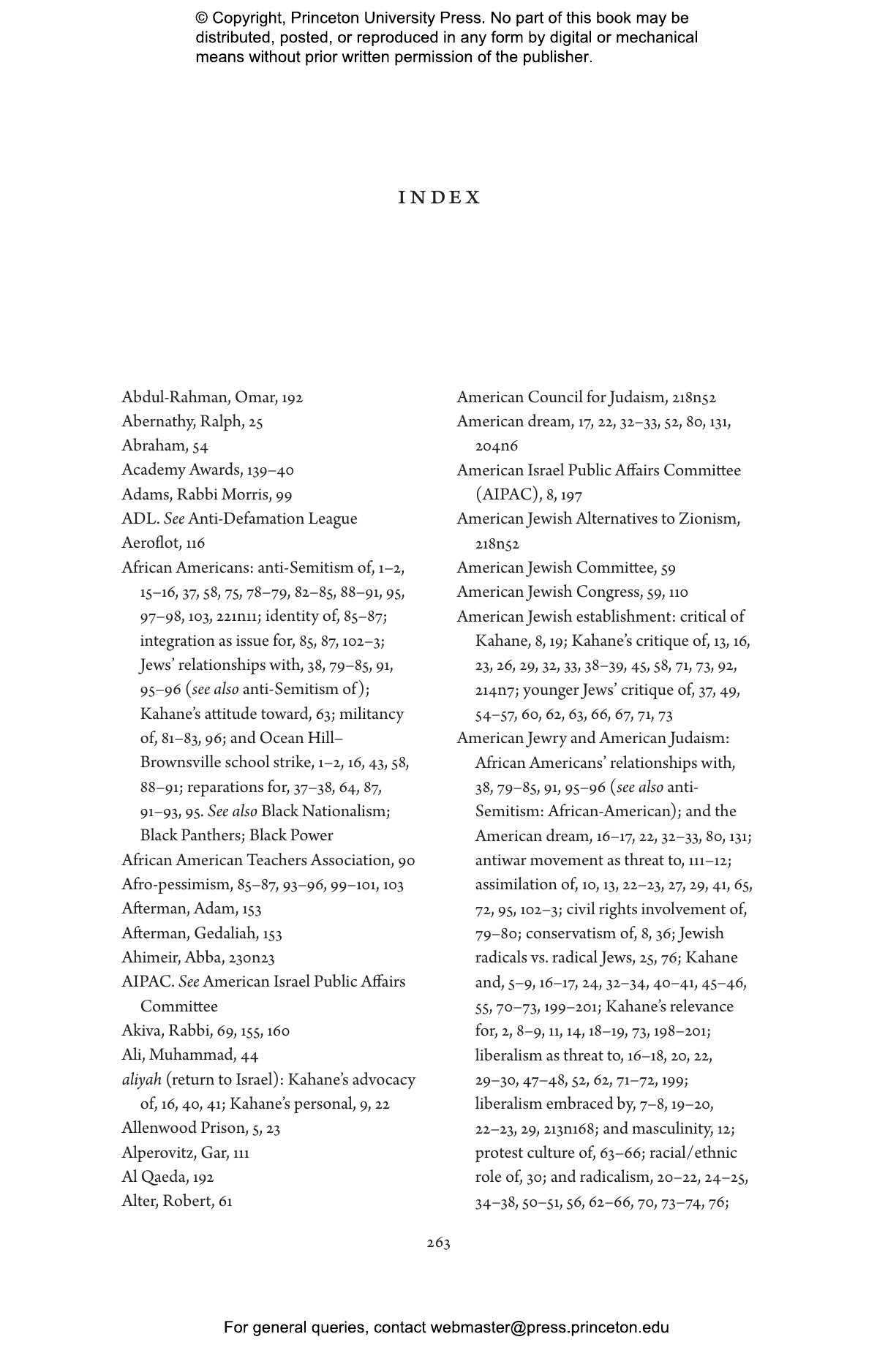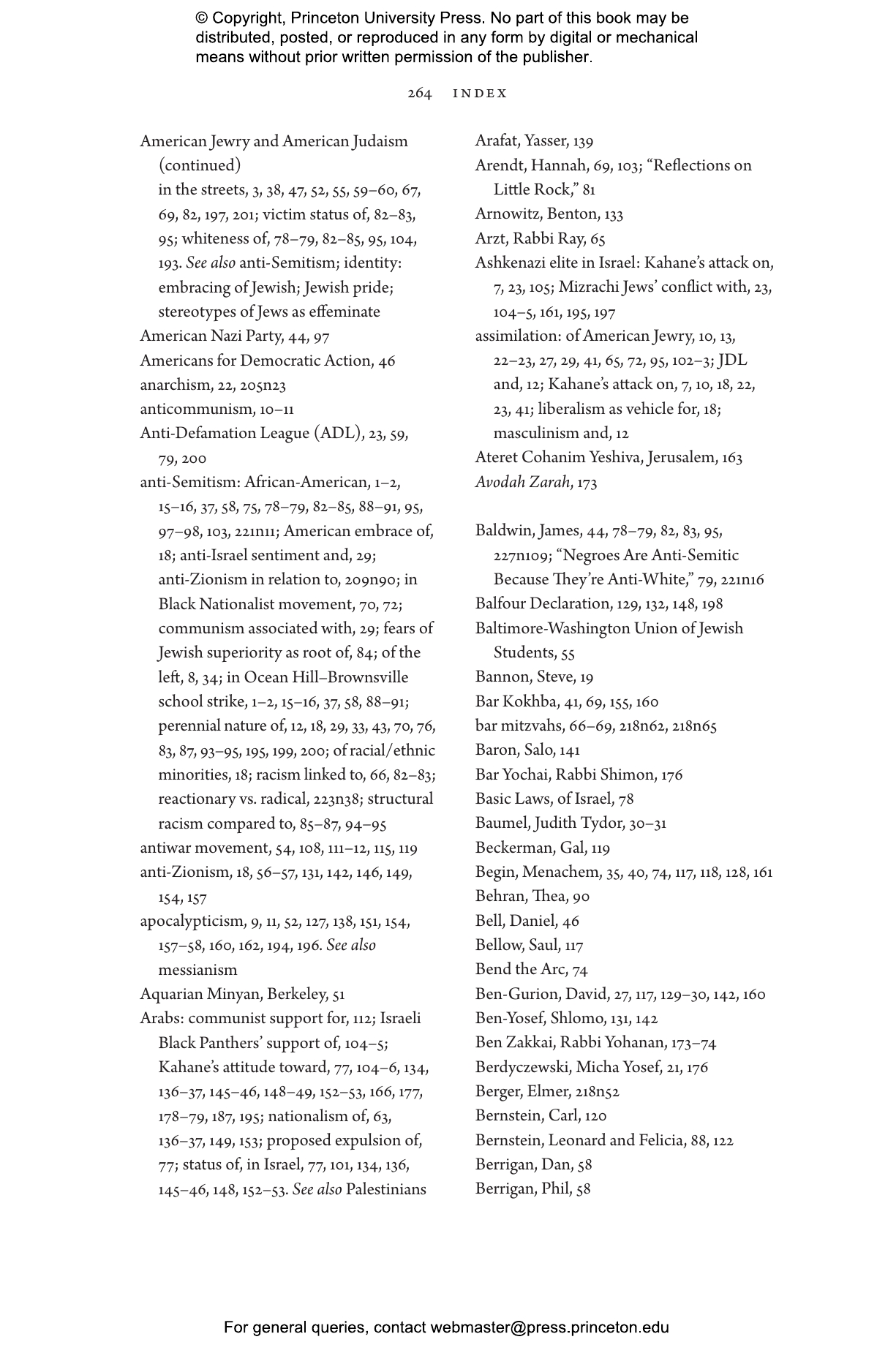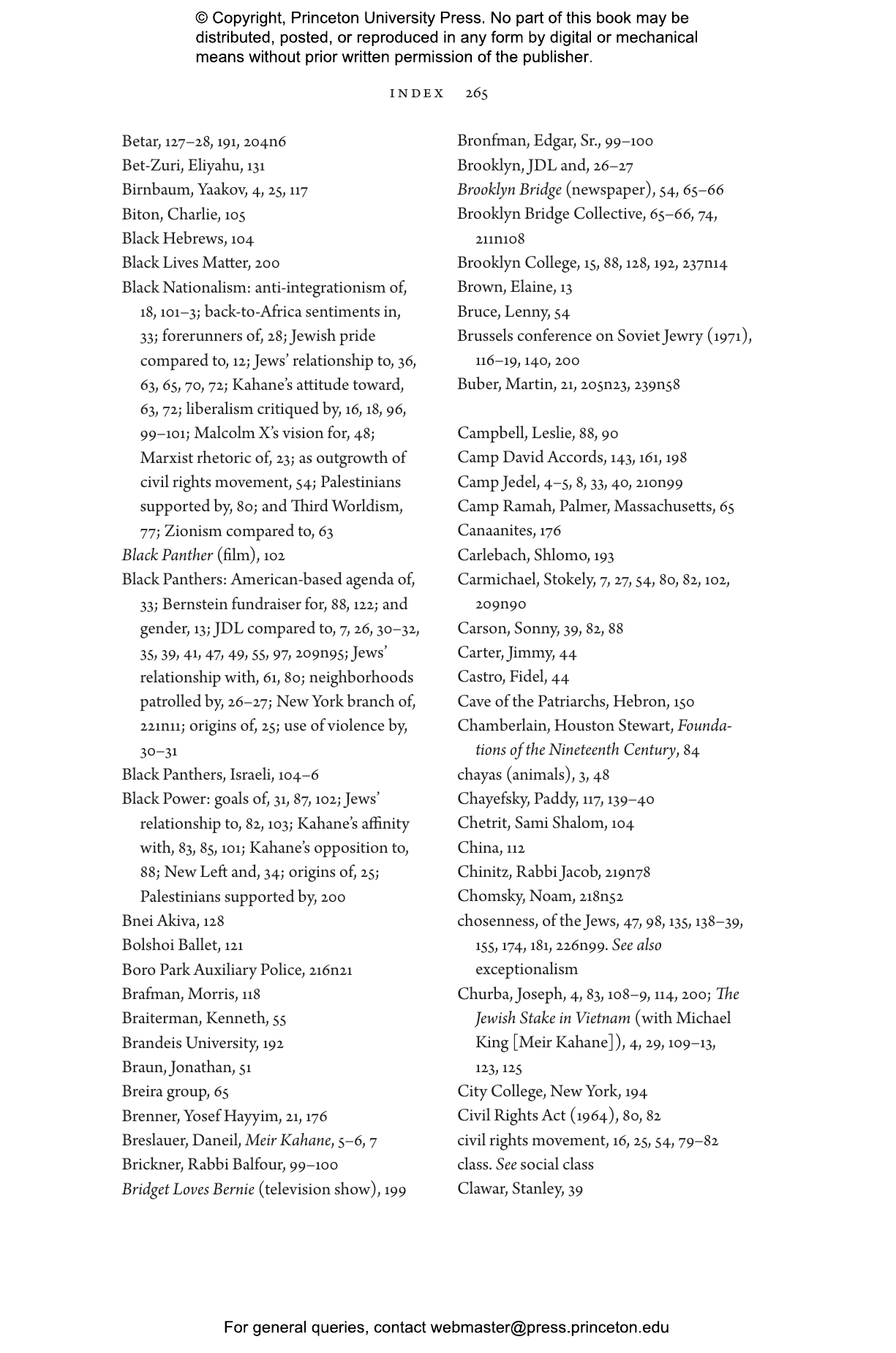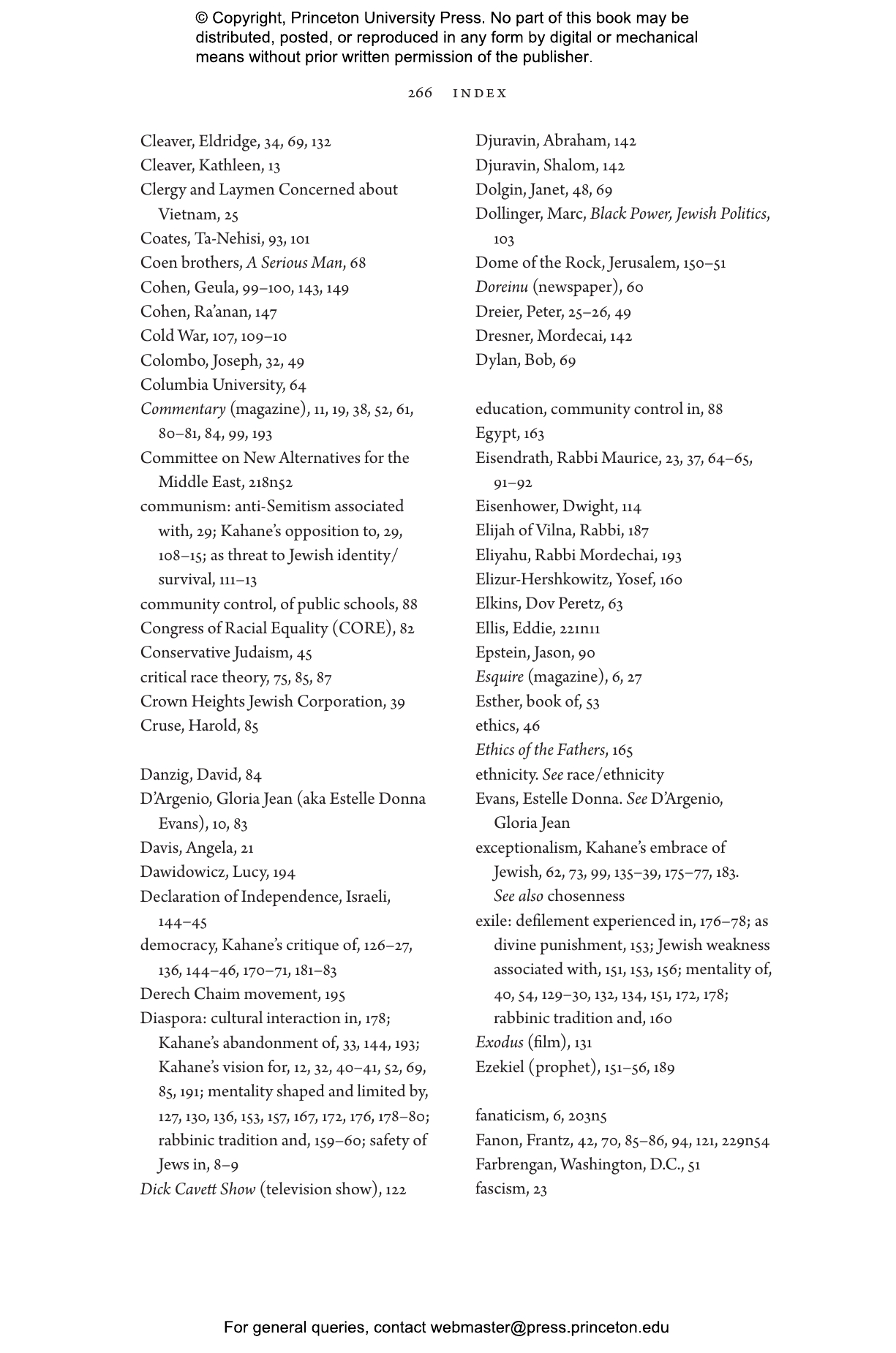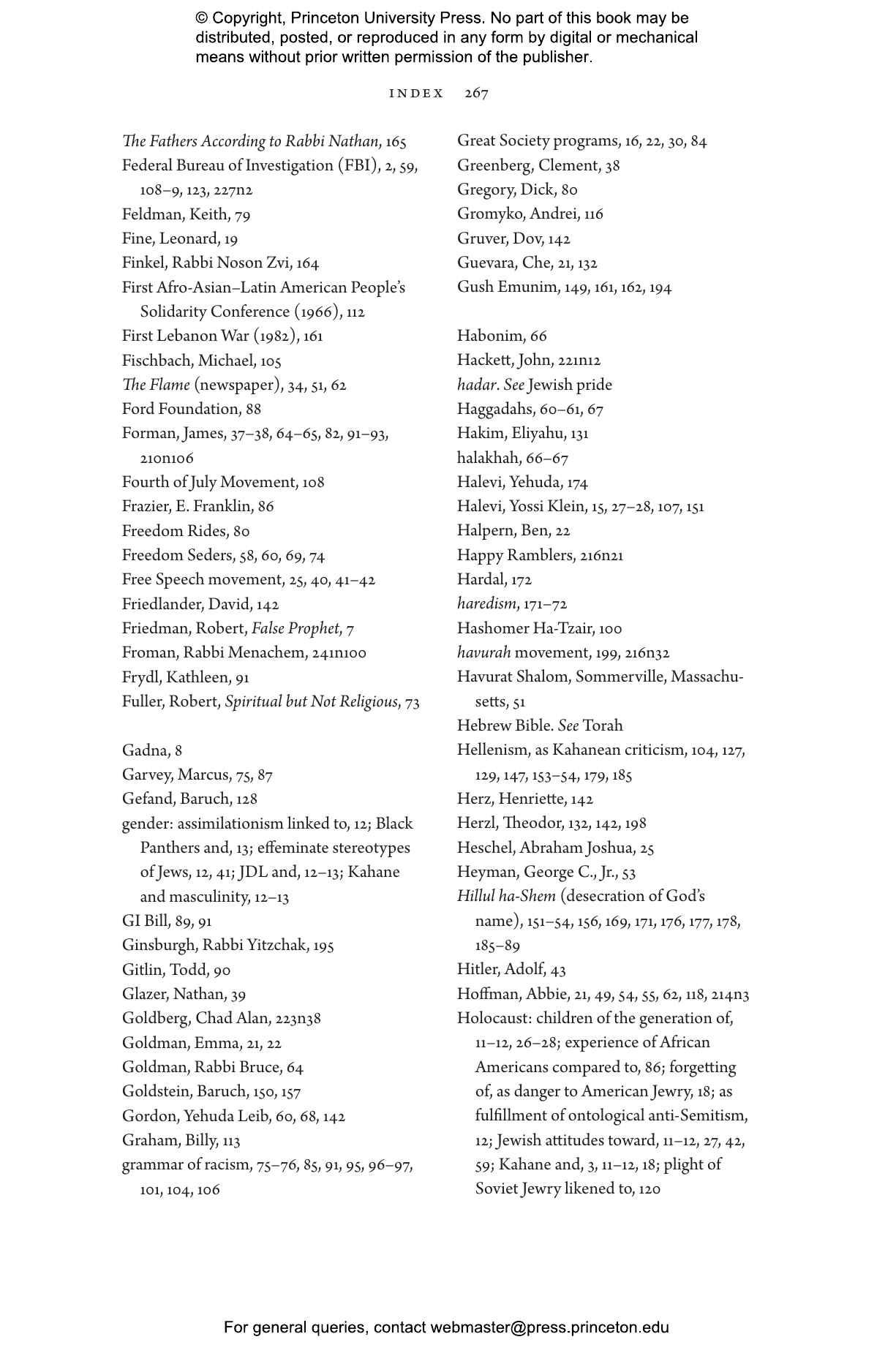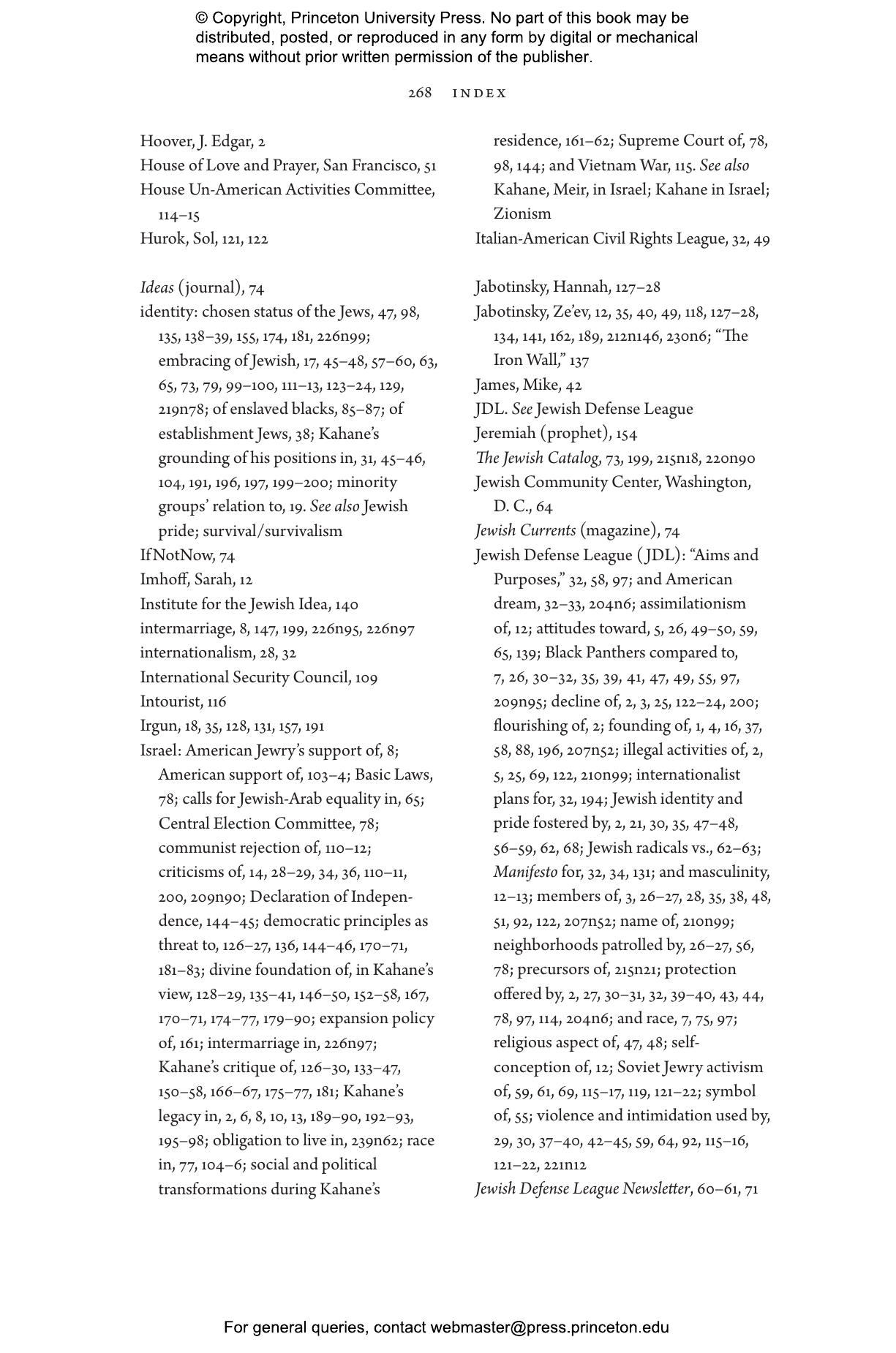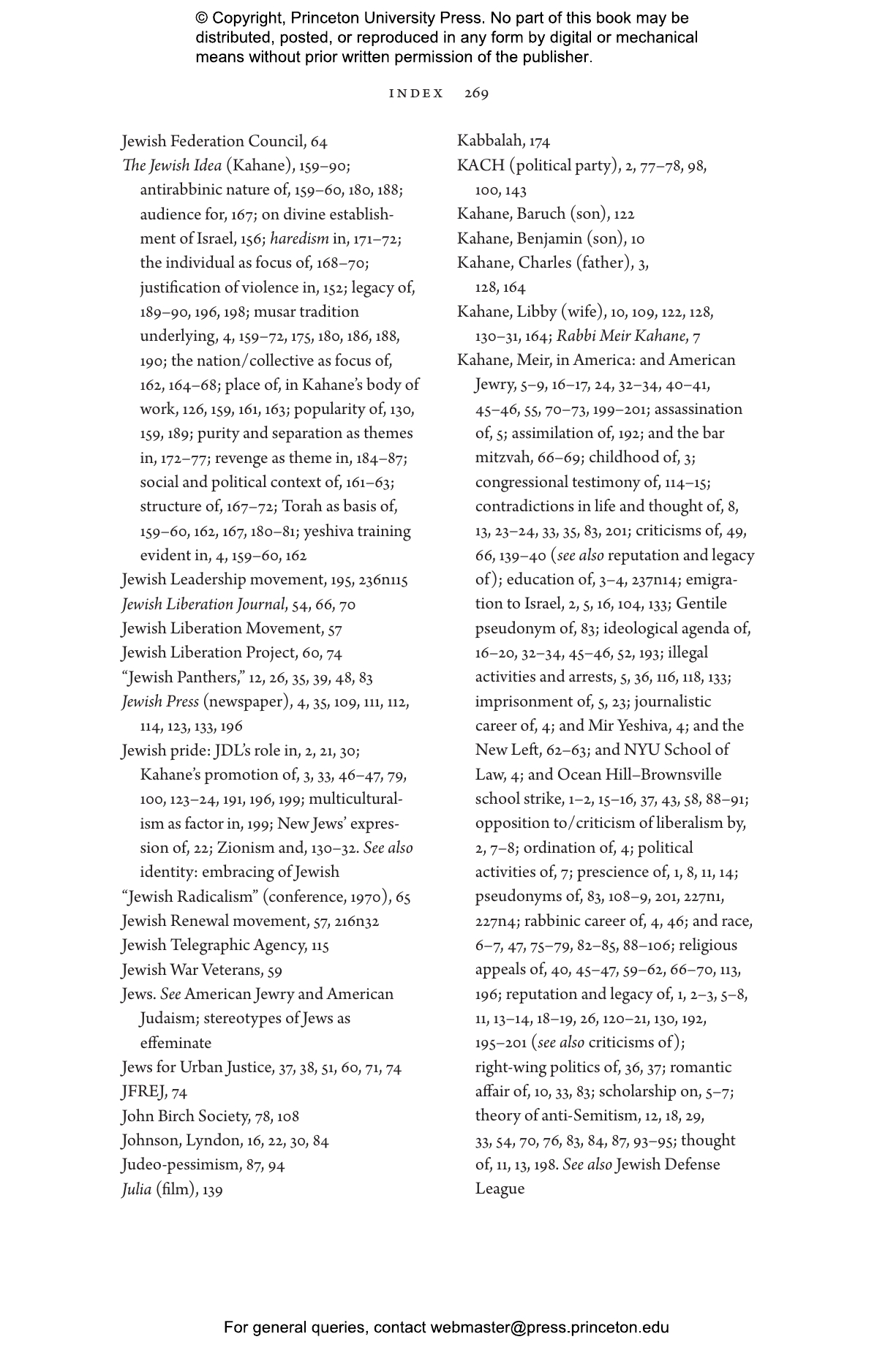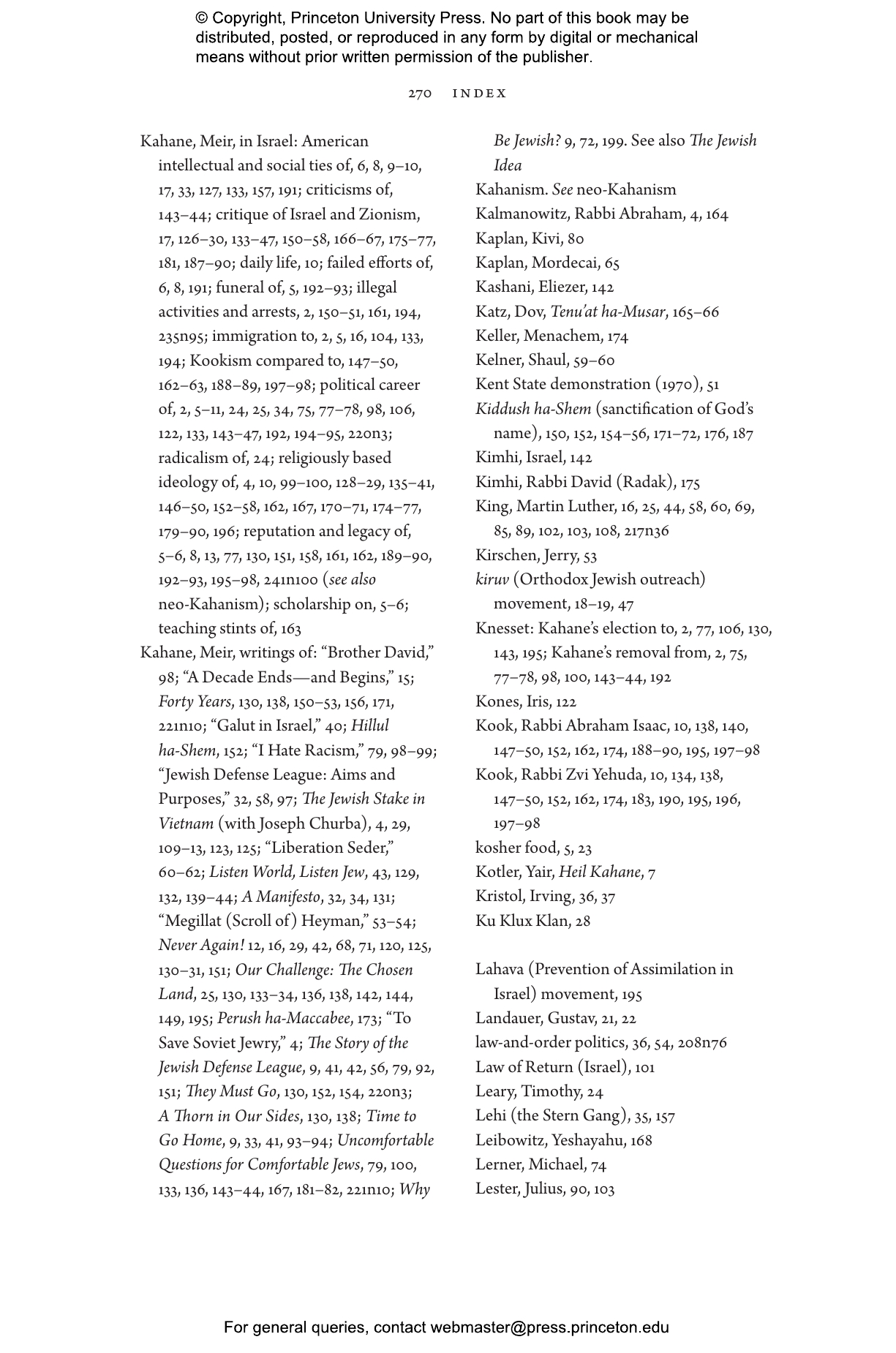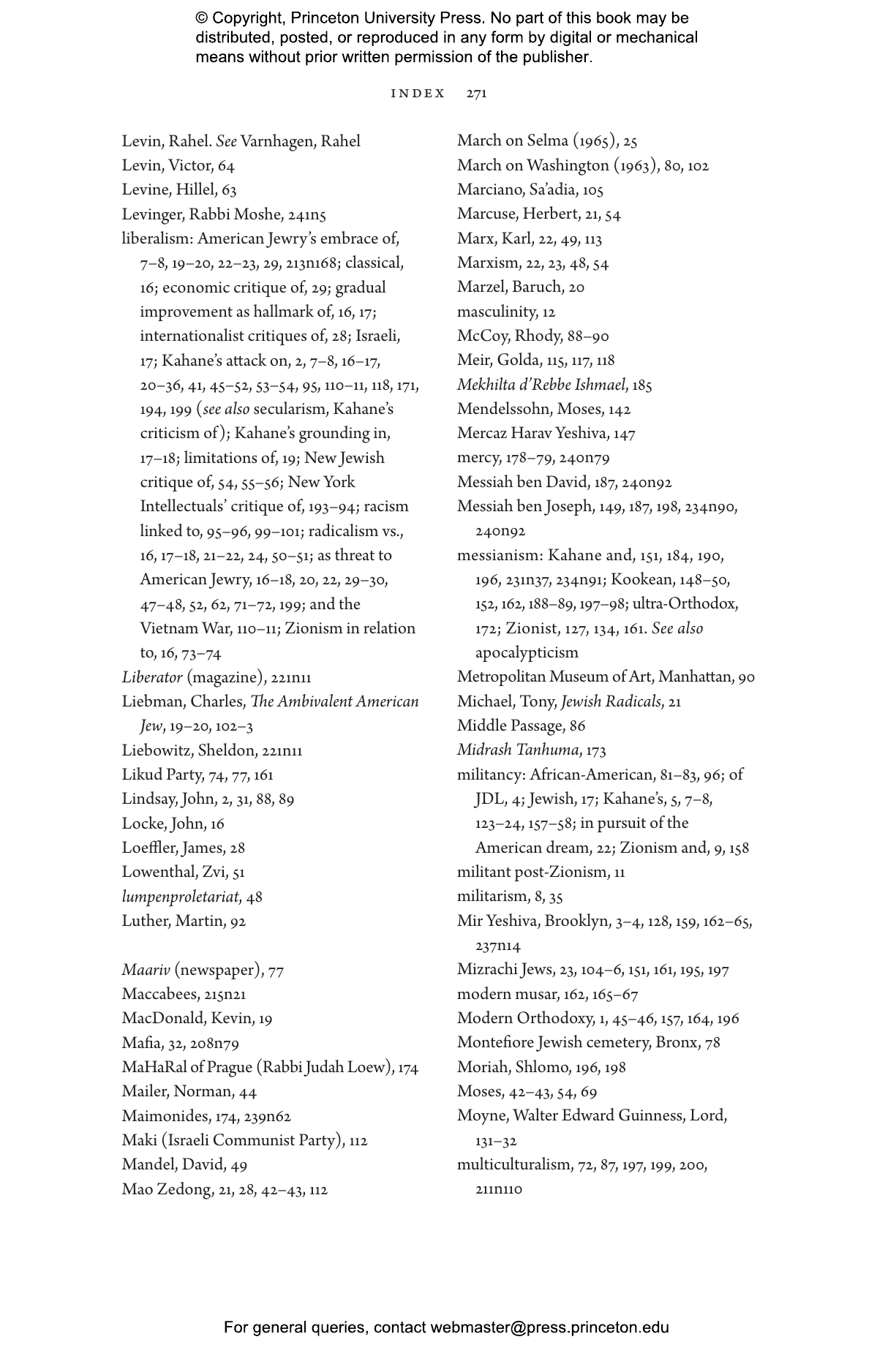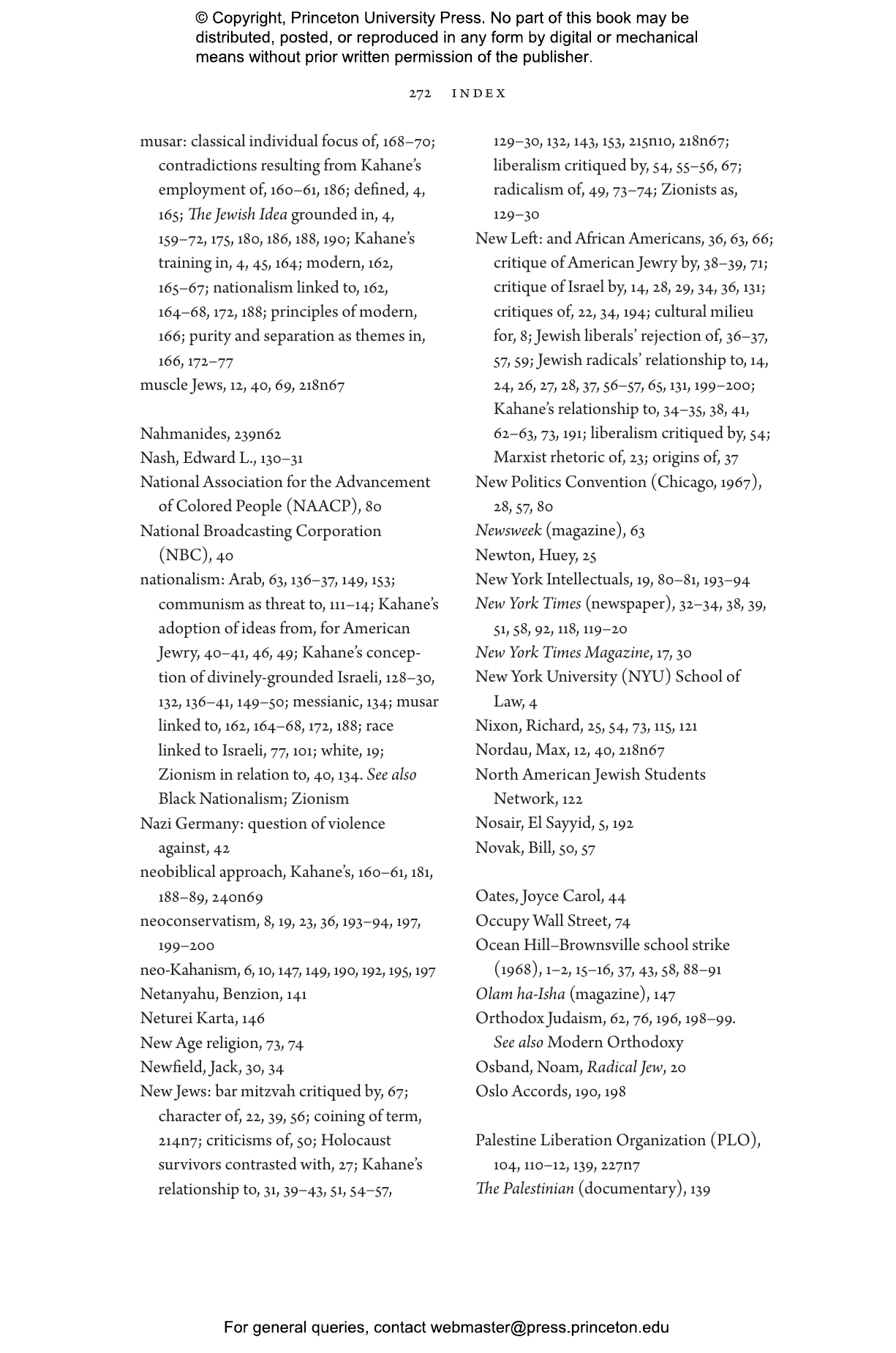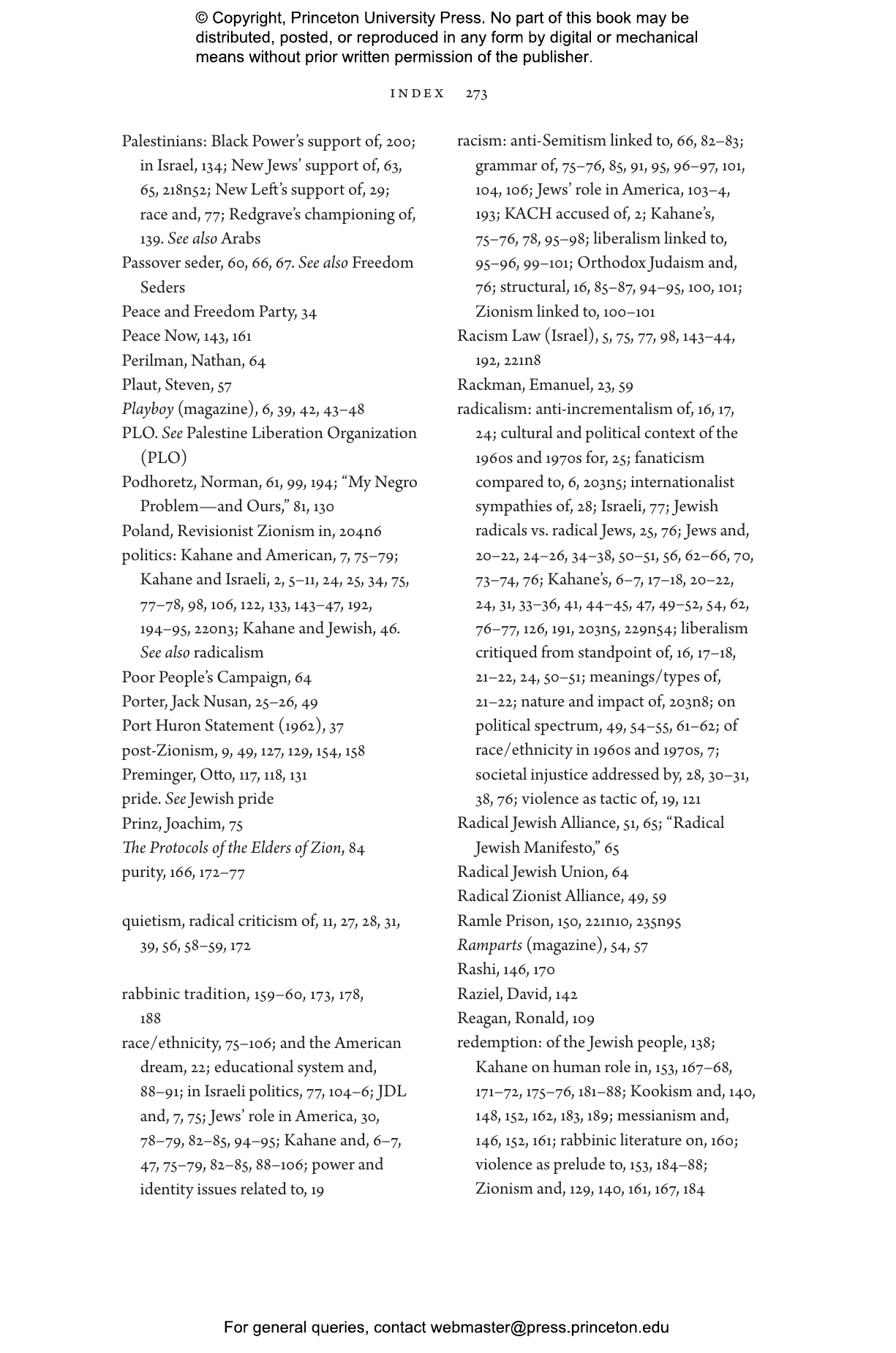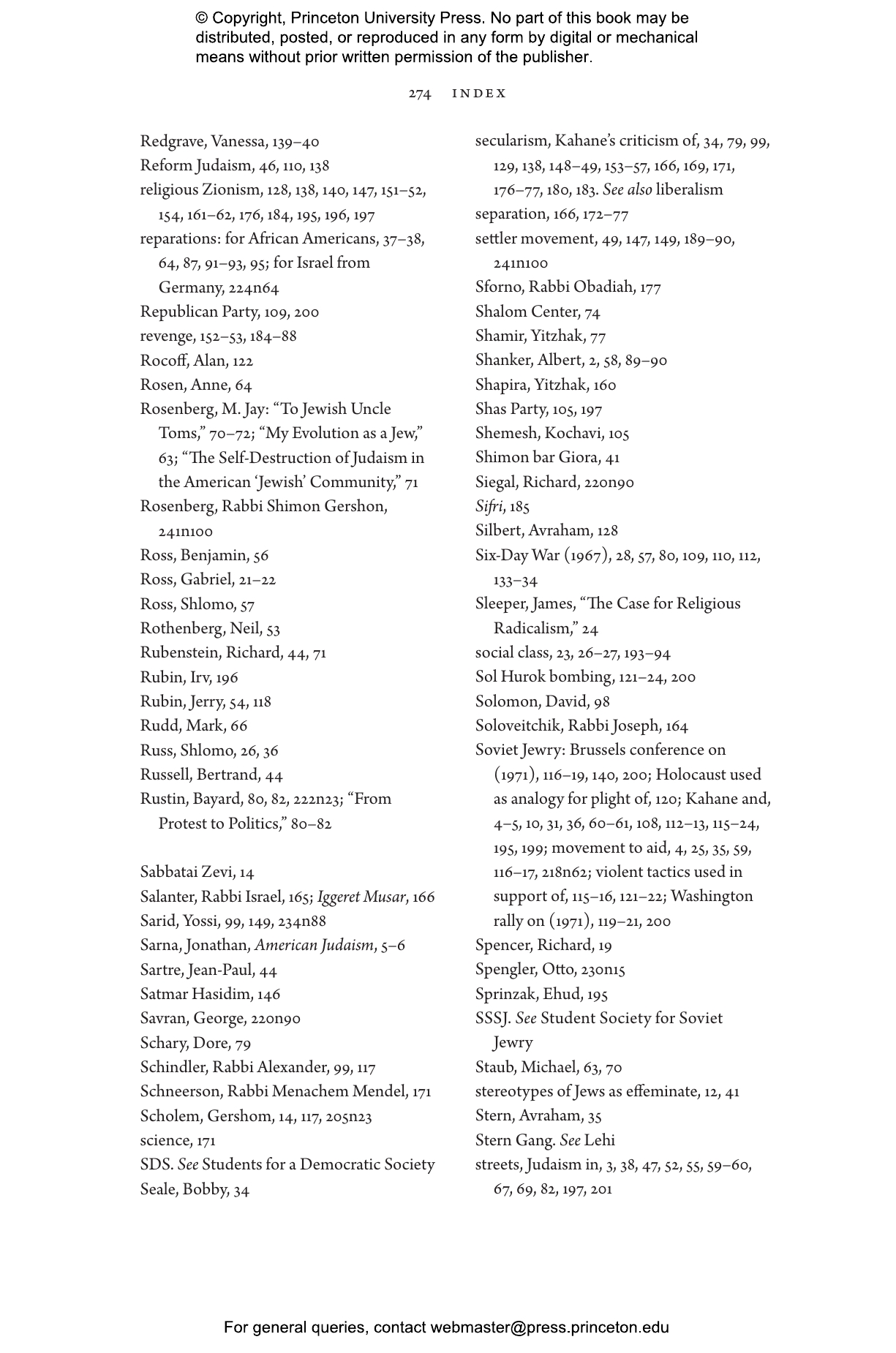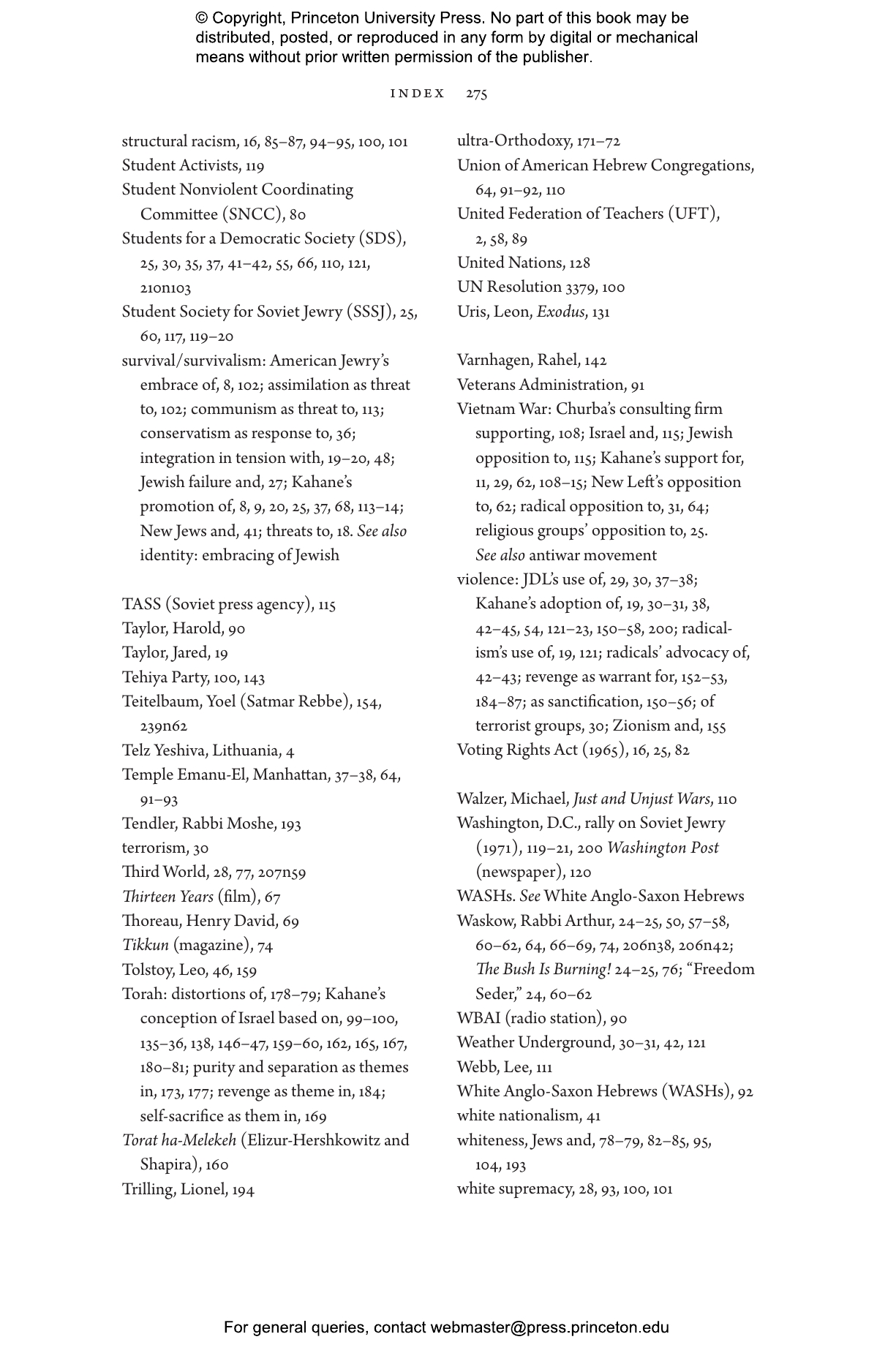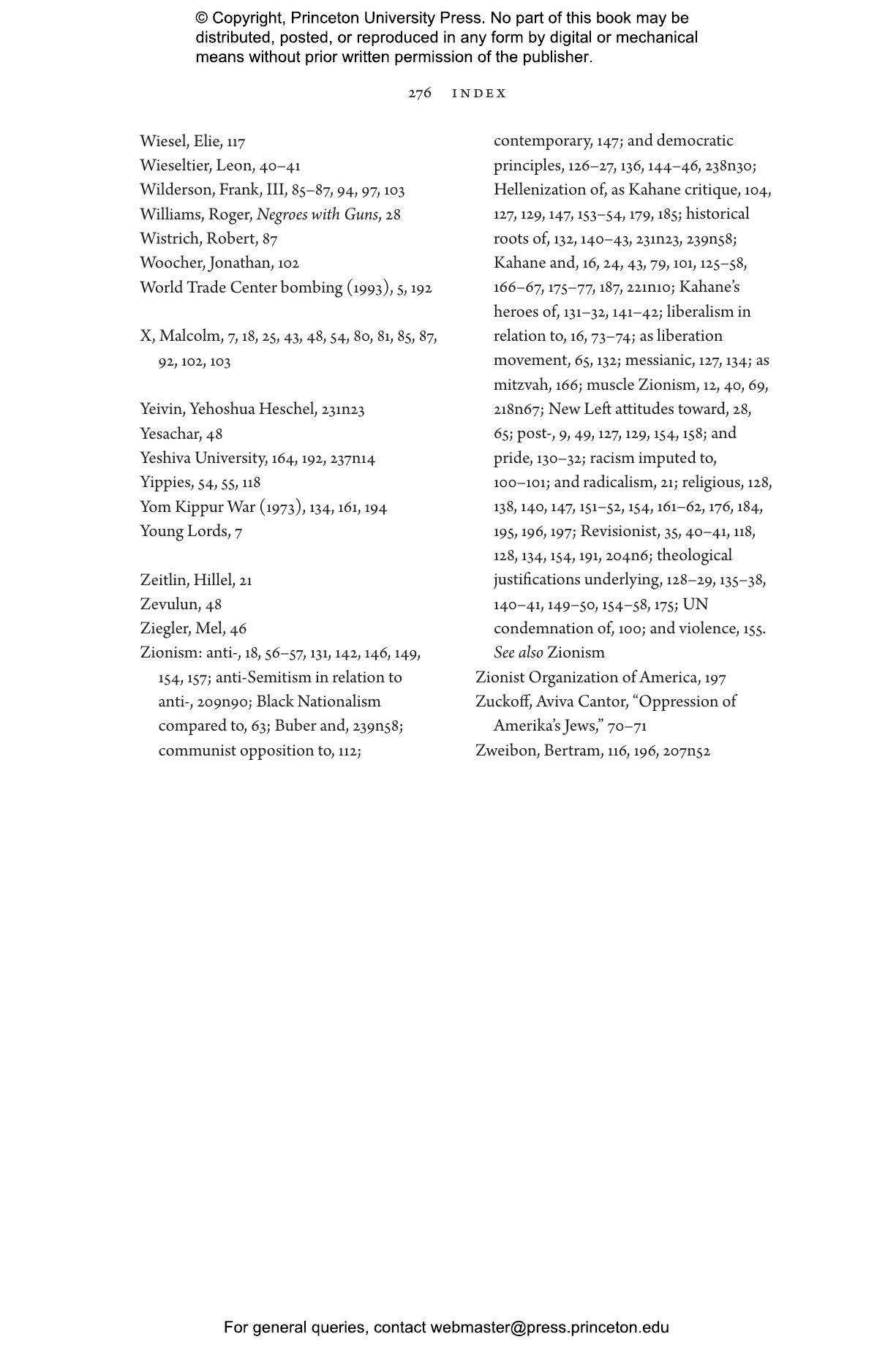Meir Kahane came of age amid the radical politics of the counterculture, becoming a militant voice of protest against Jewish liberalism. Kahane founded the Jewish Defense League in 1968, declaring that Jews must protect themselves by any means necessary. He immigrated to Israel in 1971, where he founded KACH, an ultranationalist and racist political party. He would die by assassination in 1990. Shaul Magid provides an in-depth look at this controversial figure, showing how the postwar American experience shaped his life and political thought.
Magid sheds new light on Kahane’s radical political views, his critique of liberalism, and his use of the “grammar of race” as a tool to promote Jewish pride. He discusses Kahane’s theory of violence as a mechanism to assure Jewish safety, and traces how his Zionism evolved from a fervent support of Israel to a belief that the Zionist project had failed. Magid examines how tradition and classical Jewish texts profoundly influenced Kahane’s thought later in life, and argues that Kahane’s enduring legacy lies not in his Israeli career but in the challenge he posed to the liberalism and assimilatory project of the postwar American Jewish establishment.
This incisive book shows how Kahane was a quintessentially American figure, one who adopted the radicalism of the militant Left as a tenet of Jewish survival.
"Enlightening and accessible . . . a nuanced and eye-opening portrait of an overlooked figure in Jewish political history."—Publishers Weekly
"[An] important and insightful new book."—David N. Myers, Los Angeles Review of Books
"Shaul Magid’s excellent book is not a guide to opposing the world-view of Kahane. It is a rich resource for understanding how deeply this world-view is rooted in the two centres of modern Judaism: the American Jewish community and Israel. And understanding opens the door for tikkun, or repair."—Uri Dromi, Times Literary Supplement
"[an] excellent biography . . . which presents provocative arguments aimed at reassessing the Kahane phenomenon."—Itamar Ben Ami, Haaretz
"According to a new biography by scholar Shaul Magid, Kahane represented the “underbelly” not only of American Orthodoxy, but of American Jewry writ large. In Meir Kahane: The Public Life and Political Thought of an American Jewish Radical Magid…invites all mainstream American Jewish institutions to grapple with their role in creating Kahane and perpetuating his ideas today."—Hadas Binyamini, +972 Magazine ​​​​​​​
"Magid’s fascinating book is important in sharpening our understanding regarding the sea change and extremism that has taken place in Israeli society and politics from the 1980s to the twenty-first century."—Avi Shilon, Israel Studies Review
"Meir Kahane offers a detailed account of Kahane’s life and activities in the United States and Israel. It is an intellectual history that is a major contribution to our understanding of Kahane’s thought and its cultural context. Yet the book is much more than a biography. It is an intervention in the historiography of the Jewish political tradition and its contemporary relevance. Magid compellingly shows that Kahane is part and parcel of the contemporary Jewish discourse of race, power, and politics—covertly in the United States and more and more overtly in Israel."—Journal of Religious Ethics
“One of the great scholars of Judaism of our day, Shaul Magid, presents one of the most despicable characters to emerge in postwar Jewish life. Arising in the aftermath of the Holocaust, Meir Kahane fostered a racist ideology that has influenced and poisoned Jewish politics in the United States and Israel to this day. Magid’s analysis is deeply disturbing and extremely important.”—Susannah Heschel, Dartmouth College
“Meir Kahane remains one of the most fascinating, if disturbing, American Jewish figures of the late twentieth century. Shaul Magid does a remarkable job of explaining not just the man and his thought but the ways in which his ugly legacy haunts us still.”—Peter Beinart, author of The Crisis of Zionism
“A deeply researched, elegantly written account of an individual who exemplified the stresses of late twentieth-century American Jewish life. No history of the Jews of the United States from the late 1960s onward can be complete without contemplating Kahane, and Magid’s book will provide an indispensable guide to those turbulent years.”—Hasia R. Diner, author of Lower East Side Memories: A Jewish Place in America
“Meir Kahane has long been dismissed as an outlier in American Jewish history, but as Shaul Magid demonstrates in this excellent book, he is an indicator of core trends and tensions that plague modern Jewish life. Magid is the ablest interpreter there is of the intense emotions and hypocrisies that drove Kahane and the movement he sought to create.”—Lila Corwin Berman, author of The American Jewish Philanthropic Complex
No known hazards or warnings
Accessibility Features
-
Unknown accessibility
-
Table of contents navigation
-
Single logical reading order
-
Landmark navigation
-
Index navigation
-
All non-decorative content supports reading without sight
-
No known hazards or warnings
